- Home
- Carolyn Keene
The Nancy Drew Sleuth Book Page 5
The Nancy Drew Sleuth Book Read online
Page 5
b. Straight
c. Wavy
d. Kinky
“Next come the eyes,” said Nancy. She drew a line from one eye to the margin. “Get out your notebooks, girls, and copy what we have so far.”
While they did this she wrote in the margin:
4. Eyesa. Color
b. Shape: oval, round, almond
c. Size
d. Bloodshot
e. Excessive blinking
The next facial feature to be studied was the forehead. Nancy wrote the following descriptions on the blackboard:
5. Foreheada. Bulging
b. Prominent
c. Wrinkled
The girls jotted this down, then Sue asked, “How about the shape of the face?”
“That’s next,” Nancy said, and wrote:
6. Shape of facea. Round
b. Oval
c. Broad
d. Long
“That’s easy,” Karen remarked. “You can’t change the shape of a person’s face, because of the skull structure.”
Nancy said, “But look carefully for scars, cuts, rashes, and of course beards and mustaches. Does the beard nearly cover the face, or only partially? Is it well trimmed? Is the mustache long or short? Does it match the beard and hair?”
Peg groaned as she took notes. “This lesson is a big order. I don’t see how I can remember all these things.”
Nancy chuckled. “We haven’t finished yet. Peg, how many kinds of eyebrows are there?”
“Heavy, skimpy.” She thought a moment. “Long, short—I give up.”
Martie raised her hand. “Straight and arched.”
“I know a couple,” Sue called out. “Slanted, plucked.”
“What about color?” Nancy asked. “Is it different from the hair, beard, or mustache?”
Sue giggled. “My eyebrows are darker than my hair.”
“Now we come to the nose and mouth,” Nancy went on. “Noses certainly come in many varieties: short, medium, long, straight, tilted, hooked, thick, or thin. Look for injuries—a scar, or a nose that’s deformed from an accident, like in football, baseball, hockey, soccer, or boxing.”
Karen spoke up. “Or just by getting into an ordinary fight with another person. My brother got his nose broken and had to have cosmetic surgery to fix it.”
Nancy nodded, then mentioned the mouth. She suggested that the girls describe as many shapes as they could think of.
Honey’s eyes lit up. “The biggest one belongs to a clown. Wouldn’t that be a great disguise for someone? Nobody could identify the person behind the makeup.”
“I can think of the opposite,” said Peg. “A rosebud-sized mouth. And how about thin lips and thick lips.”
“And notice the teeth,” Nancy added. “Are they real or artificial, white or discolored, and are there spaces between any of them?”
Sue added, “You wouldn’t see that if the suspect was running away from you.”
“True,” Nancy replied, “but sometimes you might be spying and have a good chance to make note of these points.”
She stood up. “Now let’s go and describe some real people.”
“Where?” Karen asked.
“The River Heights Airport. It’s a busy place with thousands of incoming and outgoing travelers.”
“Sounds great!” Sue exclaimed. “Maybe we can catch a villain!”
Excitedly, the Detective Club members set off in Nancy’s car. Twenty minutes later they reached the airport, which was alive with activity. After they parked, the girls went into the main building. A man banged his heavy suitcase against Sue as he dashed past her, but did not apologize.
“You have a nerve!” she muttered.
He turned for a second, and she glimpsed an angular face with a square-set jaw and piercing black eyes.
Just then a very stout woman wearing a shawl over her head and shoulders hurried past the group.
“What did you notice about her?” Nancy asked.
The girls looked at one another.
“She was heavy,” Karen said. “But what else?”
Their teacher smiled. “The woman had short curly hair and sunken cheeks, as if she had no teeth. She had small hands and feet, and wore bedroom slippers.”
“Nancy,” said Peg, “you’re positively too much for me. But here comes an elderly man. Let’s see if we can describe him better.”
As the gentleman passed the bench where the club members had seated themselves, he smiled. After he was gone, the girls compared notes.
“He had gray hair,” Sue said, “and blue eyes. A long thin neck, and long legs. He wore a gray suit and black shoes. His hair was short, straight, and thick.”
“That’s much better,” Nancy commented. “Keep your eyes open.”
A flight had arrived at gate 1, and a group of people walked down a corridor toward the girls’ bench. They all kept a normal pace except for one young woman who elbowed her way through the crowd at a fast clip. She held a beaded clutch purse in one hand and a large shopping bag in the other.
At once Nancy thought, That’s an expensive purse, probably imported, and my guess is there’s a lot of money in it.
The young woman’s plain dark blue suit and tailored blouse were not the appropriate attire to accompany such a purse. It was definitely meant to be carried with evening clothes.
“Watch that woman,” Nancy directed her companions.
“How can I?” Sue complained. “She’s running fast.”
“She’s probably trying to make a connecting plane,” Karen observed. “She’s turning toward gate three.”
“She’s having trouble running while wearing her high heels, too,” Honey added.
“What about her hair, eyes, nose, and mouth?” Nancy asked.
“She has big lips and plenty of lipstick,” Martie replied.
None of the club members could tell the color of the stranger’s eyes, but they agreed that her hair was dark brown. They were still discussing her when, suddenly, a woman’s shrill cry rang through the terminal.
“I’ve been robbed! Quick, somebody catch the thief!”
My guess is there ’s a lot of money in that purse, Nancy thought.
Nancy and her friends hurried toward the distressed passenger.
“What does the thief look like?” Karen asked the elderly woman.
“I don’t know! Suddenly, I missed my beaded black purse. It must have happened while we were coming off the plane.”
Instantly, Nancy thought of the young woman in the blue outfit. Before she could say anything, a guard joined the group and asked if he could be of help. After hearing the story, he asked, “Did anyone see a person snatch Mrs. Allen’s purse?”
“No!” a passerby replied.
“Are you a police officer?” Nancy asked. “Do you have the authority to make arrests?”
“Yes. Why?”
“I think we have a lead. Will you and Mrs. Allen please follow us? We saw a woman with a purse just like Mrs. Allen described.”
The guard looked surprised. “You did?”
“Yes. If we hurry, I’m sure we’ll catch her in time.”
The Detective Club members started off, with the guard close at their heels. Mrs. Allen could not keep up the pace and fell behind. The guard turned back, but she begged him to go ahead with the girls.
Soon the group rushed up to the metal detector at gate 3. The guard asked the attendant if she had noticed a young woman in a blue suit carrying a beaded purse and a large shopping bag.
“I noticed a woman who fits your description, but she had no purse.”
“She probably hid it in the shopping bag,” Honey spoke up.
“No doubt,” the guard said, and quickly explained the situation. The attendant waved the group through the gate, and they hurried on.
The last passengers were just boarding. The guard asked the stewardess to delay takeoff while his group hunted for the suspect. She telephoned the pilot, and within seconds he appeared. When he heard t
he story, the pilot said to Nancy, “Point her out. We’ll get to the bottom of this!”
Nancy led the way down the aisle. The other girls followed behind the pilot and the guard.
The passengers looked up in surprise and craned their necks as the group went by. Toward the rear of the plane, Nancy suddenly stopped. She had found the young woman sitting next to the cruel-looking man who had banged his bag into Sue in the terminal!
“There she is,” Nancy whispered to the men, and her friends nodded in agreement.
The guard leaned over and asked the suspect if she had a black beaded purse.
“Of course not!” the young woman snapped.
“May I see the bag you are carrying?”
“No. It’s none of your business!”
The guard showed his police badge. “I want to see it.”
At this point her companion spoke up. “Listen, this lady’s got rights!”
“I have a whole group of witnesses who saw her with a black beaded purse that may be stolen,” the guard replied evenly.
There was a disturbance in the background as Mrs. Allen pushed her way forward. “I own the stolen purse and everything in it! Give it to me at once!”
She and the suspect glared at each other. Then to everyone’s amazement, the woman began to cry. “Yes, I have it. I don’t want to go to jail. He—he”—she looked at her companion—“he made me do it!”
“What are you talking about?” the man bellowed. “I don’t even know you!”
The guard looked at him intently. “Ah, but I recognize you! You’re called Sneaky-Eyed Pete and were in prison for smuggling diamonds, and you escaped. The two of you had better come along with me.”
The couple did not budge, but Mrs. Allen did. Pushing the guard aside, she reached down and swooped up the woman’s shopping bag. She rummaged inside and drew out a beautiful beaded black purse.
“This is mine!” she cried out triumphantly, and un-snapped it. “My money’s still in it, and so are the diamonds. My husband is a jeweler, and I bought them for him.”
“I don’t want to go to jail. He made me do it!” the woman cried out.
“Where?” the guard inquired.
“A dealer in New York.”
After glancing at the stones, the guard said, “I’m inclined to believe that those diamonds are part of a shipment stolen in Holland and smuggled into this country.”
“What!” Mrs. Allen was shocked. “You mean I bought stolen merchandise?”
“Perhaps not,” the guard calmed her. “Don’t worry about it. But give me the name of the dealer, and the police will investigate it and let you know.”
The pilot now conferred briefly with the guard, then said, “It’s past takeoff time. Will all of you please disembark?”
The two men forced the thief and the smuggler to unstrap their seat belts and go with the guard.
“I’ll call for another officer to help you,” the *pilot offered as the group walked toward the front of the plane.
“I can’t thank you enough,” Mrs. Allen said gratefully to the girls. “You certainly have sharp eyes.”
The club members smiled, and Nancy said she hoped Mrs. Allen would have no trouble recovering her money from the New York dealer if the diamonds had been smuggled. She said good-bye to the woman, who followed the prisoners and the guards into the security office. Then the girls left the terminal and walked to the parking lot.
“Wow!” Sue exclaimed as they climbed into the car. “And I was only kidding when I said we might catch a villain!”
Nancy chuckled. “We didn’t only catch one, we caught two!”
ACTIVITY
Nancy suggests that you play detective-for-the-day and go to your local mall or movie theater and observe people’s traits. Write down your notes and observations of passersby. Always remember to be subtle and try not to stare ... too hard.
CHAPTER VII
THE QUEEN’S CAMEO
Lost and Found
“I HAVE a great mystery for us to solve!” said Honey Rushmore as the Detective Club members met at Nancy Drew’s home. “There’s only one problem. The mystery is a year old.”
“A year is a long time,” Nancy said with a chuckle. “But tell us, what is it all about?”
“My mother took a trip last July. She was wearing a valuable cameo that was very old and had once belonged to a queen.”
“A queen’s possession?” Peg asked in awe. “How did your mother get it?”
“I really don’t know,” Honey replied. “But I remember as a child I was never allowed to touch the cameo because it was so valuable.”
“What’s the mystery?” Karen interrupted impatiently.
“Sometime after Mother boarded the sleeper train back to River Heights,” Honey went on, “she lost the pin. She has no idea whether it came off her dress in the station, on the train, or in the street. When she arrived home, she discovered it was gone.”
Sue wanted to know whether Mrs. Rushmore had been in touch with the police.
“Oh, yes,” Honey answered. “They made a search of the station and the train, but they didn’t find the cameo. Then Mother contacted her insurance company, and they searched, too. But still the pin did not turn up. Finally the insurance company paid her what they considered it was worth. But Mother’s convinced that its value was at least ten times that much. She feels very bad about the loss because the brooch had been in her family a long time.”
Cathy sighed. “If the police and the insurance people couldn’t find the cameo, it seems to me there isn’t much chance we can.”
Nancy smiled. “Don’t forget that the members of this Detective Club never give up. I classify this case under Lost and Found. I’ll give you some hints on how to go about the sleuthing. First of all, did the police and insurance company go to all the pawnshops and fences in this area?”
“What are fences?” Sue asked.
Nancy explained that these were little-known places where people take stolen property to be sold illegally. “Such stores differ from legitimate pawnshops, where a person can leave an item in exchange for cash. The pawnbroker will not sell it for a certain length of time and will return it to the owner when he or she pays back the money with interest.”
Honey assured the girls that pawnshops had been investigated. “I don’t know about fences, and I don’t believe my mother would. But I’m sure the police and the insurance company must.”
“Why does your mother want to look for the cameo now?” Peg inquired.
“She saw a similar pin in a jewelry shop downtown,” Honey explained. “It was priced much higher than what Mother had received from the insurance company. Now, suddenly, she wants to try finding it again and has given us the job.”
“That’s very flattering,” Nancy remarked. “We’ll certainly do our best.”
“But where do we start?” Martie asked.
Nancy said she would like to hear more about Mrs. Rushmore’s train trip. “Honey, what car was your mother in? How often did she go to the dining car? Did she leave her own car for any other reason than to eat?”
“I have no idea,” Honey said.
“Do you think we could talk to your mother, if she’s at home?”
“Oh, she’s home,” Honey replied. “She was hoping you would take the case and said she would wait to find out.”
Nancy brought out her car, and the club members piled in. They reached the Rushmore house a few minutes later.
Honey’s mother greeted the girls with a smile. “I just knew you’d agree to look for my brooch,” she said.
“Yes,” Nancy replied. “We’d like to try.”
After the girls were seated in the living room, she said, “Mrs. Rushmore, we want to ask you a few questions. First of all, what was the name of your sleeping car?”
“Mount Rushmore. It was such an amazing coincidence. That’s probably why I can still remember it.”
Honey’s mother went on to say that she had gone to the din
ing car once during her journey, but other than that had not left the sleeper.
Nancy asked whether anyone in the dining car had remarked about her cameo.
Mrs. Rushmore smiled. “Yes, now that you ask me, I remember. I sat across the table from a charming woman. She admired the pin and thought it was quite unique. She had never seen one like it.”
“Then,” Nancy concluded, “we can rule out the possibility that you lost your cameo getting on the train.”
Mrs. Rushmore nodded.
Sue spoke up. “Did you talk to anyone else during your trip?”
Mrs. Rushmore thought a moment, then replied, “No. I read most of the time. There weren’t many passengers on the train, and no one sat near me.”
“Were you jostled at any time, including when you got on and off the sleeper?” Nancy inquired.
“No. Not that I remember.”
“After arriving in River Heights,” Cathy said, “how did you go home?”
“Our car was parked at the station. And it was carefully inspected, of course. The pin was not in it.”
“From what you’ve told me,” Nancy said, “I think the cameo was lost rather than stolen.”
“Why?” Honey wanted to know.
“If a thief had taken the pin, he was probably exclusively a jewel thief. I think only a knowledgeable jewel thief would have recognized the cameo’s value. And the police had plenty of time to track him down in the past year. They have a record of known jewel thieves and their fences. Also, the fact that few people were on the train and you don’t remember being jostled suggest that you probably lost the brooch.”
“But then why wasn’t it found?” Mrs. Rushmore asked.
“I don’t know,” Nancy said. “If you’ll excuse me for a moment, I’d like to call my dad. There’s something I want to do, and he can help us.”
Honey directed her to the hall telephone, and Nancy dialed her father’s number. When Mr. Drew answered, she said, “Dad, I’m working on a case that has to do with sleeping cars. Don’t I recall that several of them are in the railroad yard of River Heights? We’re looking for one called Mount Rushmore. Could you find out if it’s there and, if so, arrange for the Detective Club to investigate it?”

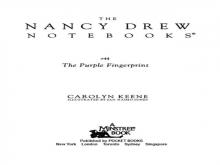 The Purple Fingerprint
The Purple Fingerprint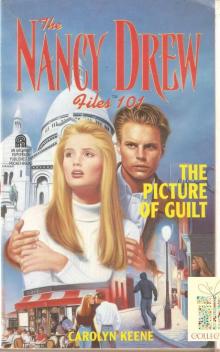 The Picture of Guilt
The Picture of Guilt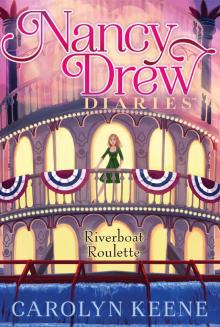 Riverboat Roulette
Riverboat Roulette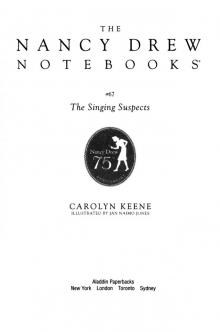 The Singing Suspects
The Singing Suspects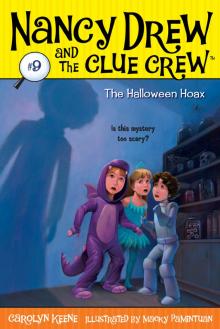 The Halloween Hoax
The Halloween Hoax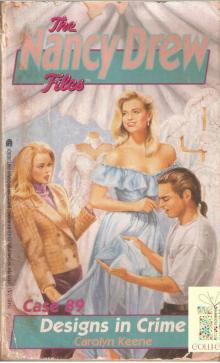 089 Designs in Crime
089 Designs in Crime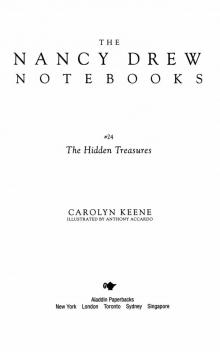 The Hidden Treasures
The Hidden Treasures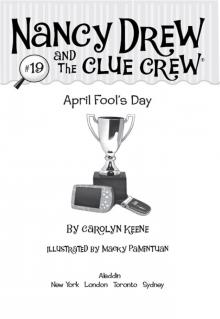 April Fool's Day
April Fool's Day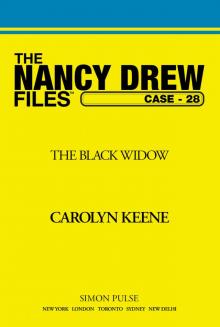 The Black Widow
The Black Widow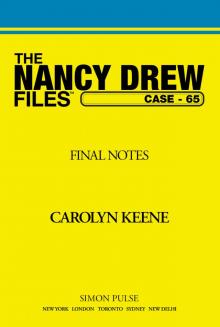 Final Notes
Final Notes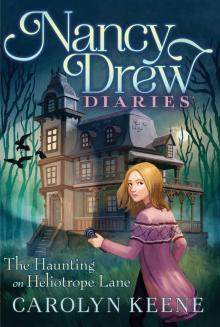 The Haunting on Heliotrope Lane
The Haunting on Heliotrope Lane The Runaway Bride
The Runaway Bride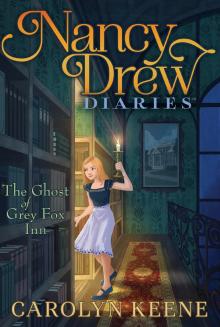 The Ghost of Grey Fox Inn
The Ghost of Grey Fox Inn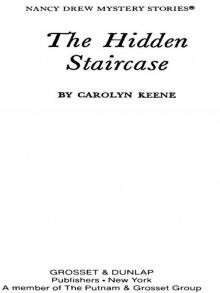 The Hidden Staircase
The Hidden Staircase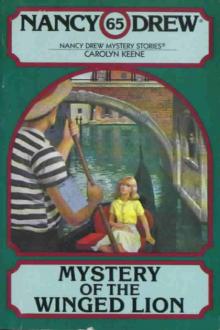 Mystery of the Winged Lion
Mystery of the Winged Lion Over the Edge
Over the Edge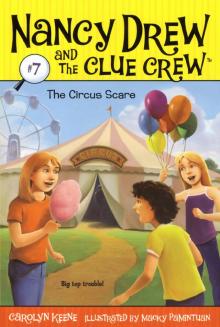 The Circus Scare
The Circus Scare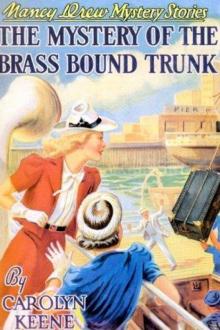 The Mystery of the Brass-Bound Trunk
The Mystery of the Brass-Bound Trunk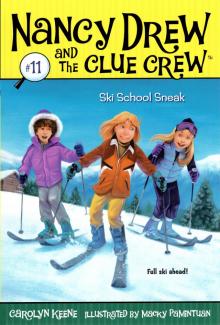 Ski School Sneak
Ski School Sneak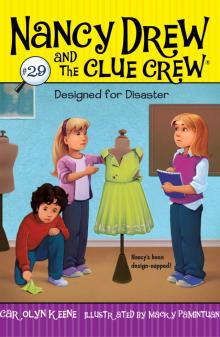 Designed for Disaster
Designed for Disaster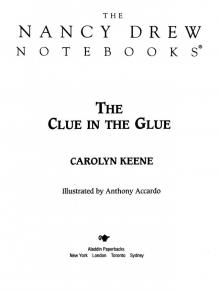 The Clue in the Glue
The Clue in the Glue Cold as Ice
Cold as Ice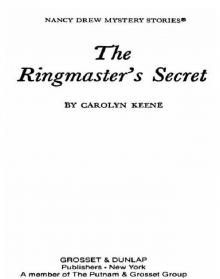 The Ringmaster's Secret
The Ringmaster's Secret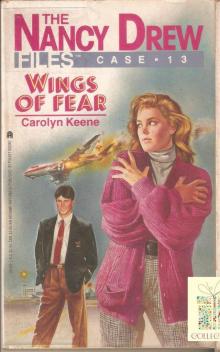 013 Wings of Fear
013 Wings of Fear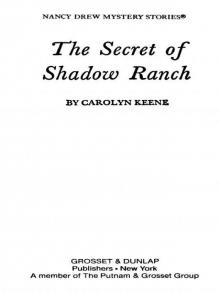 The Secret of Shadow Ranch
The Secret of Shadow Ranch Not Nice on Ice
Not Nice on Ice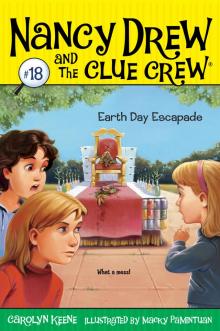 Earth Day Escapade
Earth Day Escapade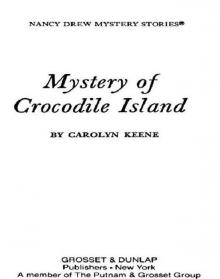 Mystery of Crocodile Island
Mystery of Crocodile Island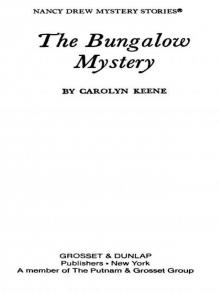 The Bungalow Mystery
The Bungalow Mystery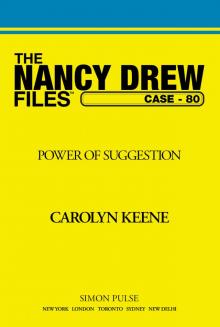 Power of Suggestion
Power of Suggestion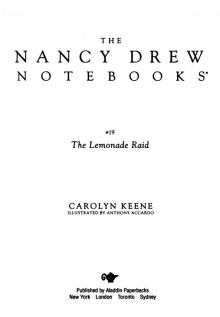 The Lemonade Raid
The Lemonade Raid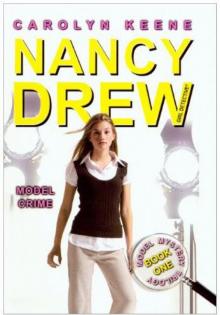 Model Crime
Model Crime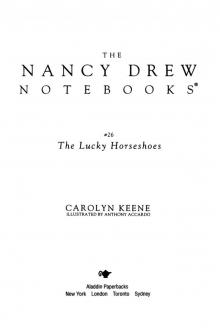 The Lucky Horseshoes
The Lucky Horseshoes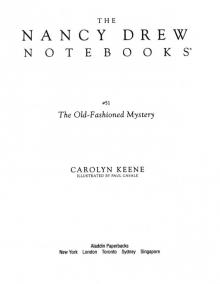 The Secret of the Old Clock
The Secret of the Old Clock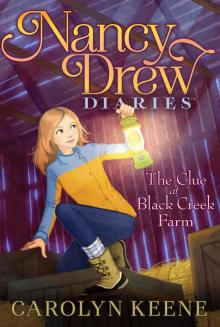 The Clue at Black Creek Farm
The Clue at Black Creek Farm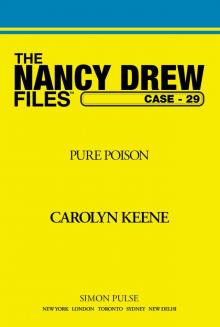 Pure Poison
Pure Poison Nobody's Business
Nobody's Business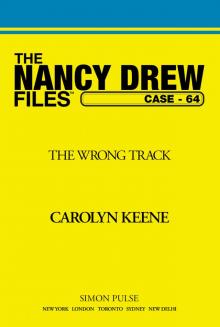 Wrong Track
Wrong Track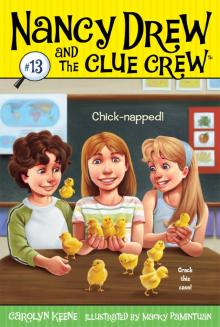 Chick-Napped!
Chick-Napped!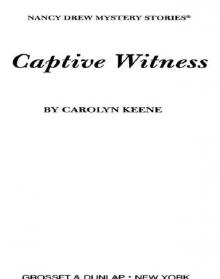 Captive Witness
Captive Witness If Looks Could Kill
If Looks Could Kill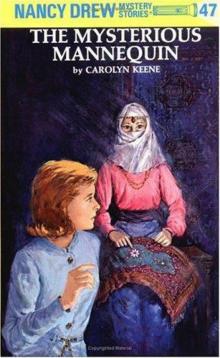 The Mysterious Mannequin
The Mysterious Mannequin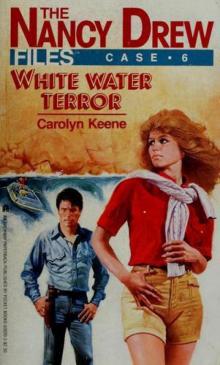 White Water Terror
White Water Terror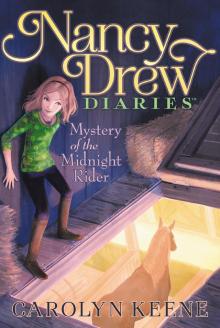 Mystery of the Midnight Rider
Mystery of the Midnight Rider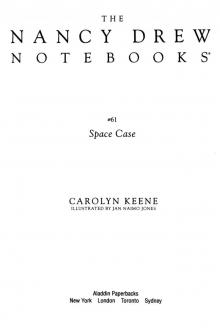 Space Case
Space Case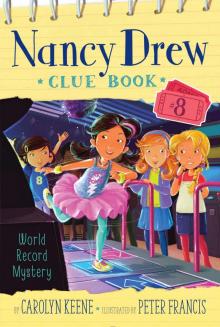 World Record Mystery
World Record Mystery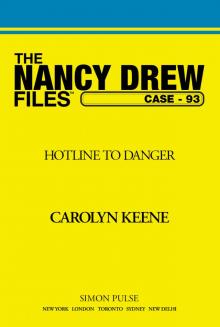 Hotline to Danger
Hotline to Danger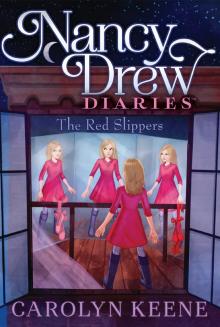 The Red Slippers
The Red Slippers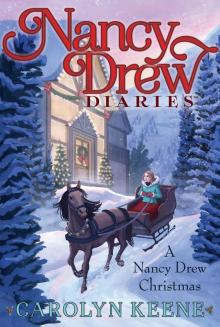 A Crime for Christmas
A Crime for Christmas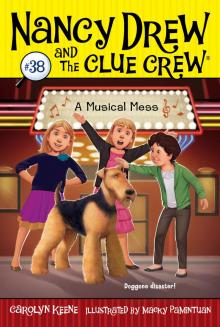 A Musical Mess
A Musical Mess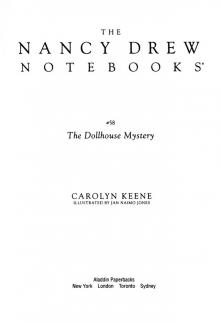 The Dollhouse Mystery
The Dollhouse Mystery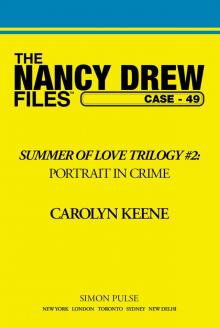 Portrait in Crime
Portrait in Crime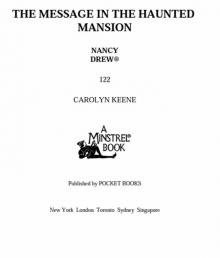 The Message in the Haunted Mansion
The Message in the Haunted Mansion Playing With Fire
Playing With Fire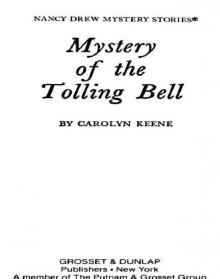 Mystery of the Tolling Bell
Mystery of the Tolling Bell Cutting Edge
Cutting Edge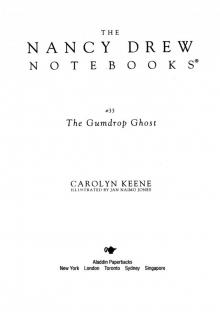 The Gumdrop Ghost
The Gumdrop Ghost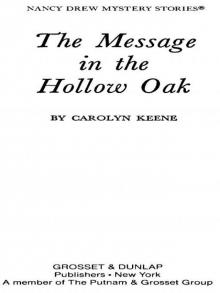 The Message in the Hollow Oak
The Message in the Hollow Oak Trial by Fire
Trial by Fire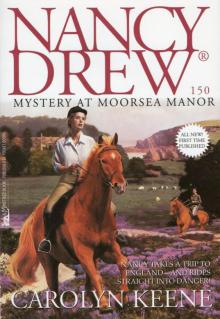 Mystery at Moorsea Manor
Mystery at Moorsea Manor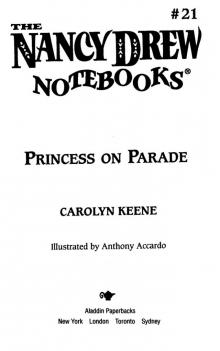 Princess on Parade
Princess on Parade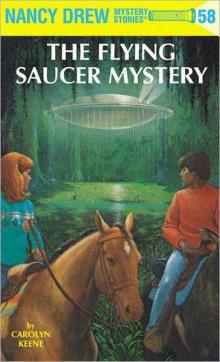 The Flying Saucer Mystery
The Flying Saucer Mystery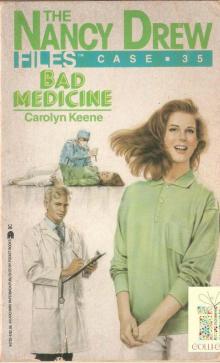 035 Bad Medicine
035 Bad Medicine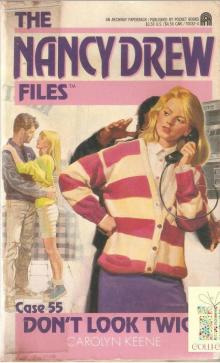 055 Don't Look Twice
055 Don't Look Twice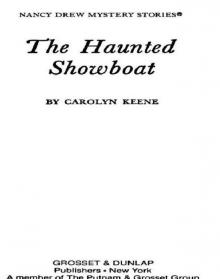 The Haunted Showboat
The Haunted Showboat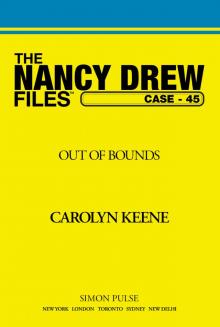 Out of Bounds
Out of Bounds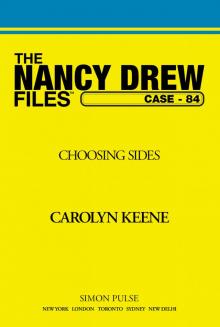 Choosing Sides
Choosing Sides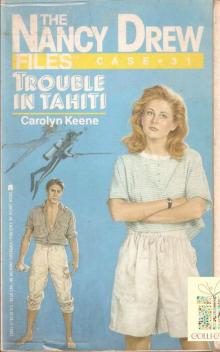 031 Trouble in Tahiti
031 Trouble in Tahiti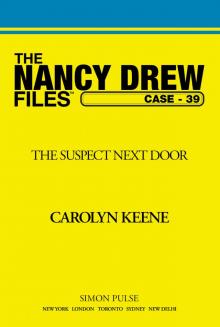 The Suspect Next Door
The Suspect Next Door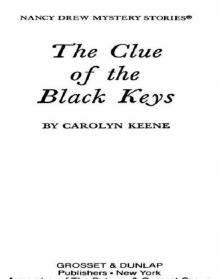 The Clue of the Black Keys
The Clue of the Black Keys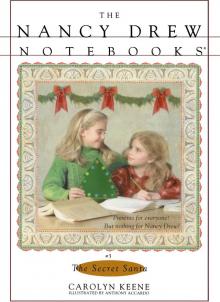 The Secret Santa
The Secret Santa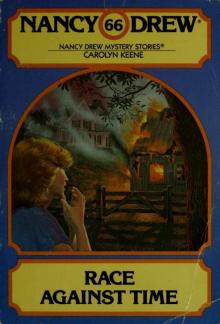 Race Against Time
Race Against Time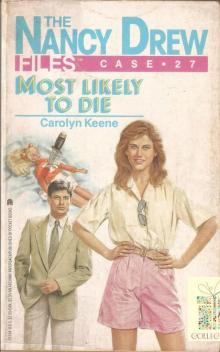 027 Most Likely to Die
027 Most Likely to Die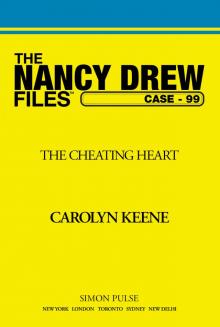 The Cheating Heart
The Cheating Heart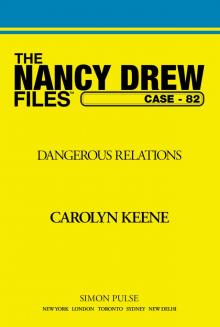 Dangerous Relations
Dangerous Relations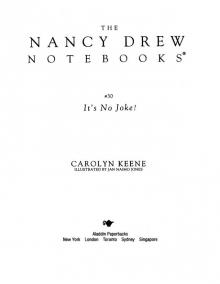 It's No Joke!
It's No Joke!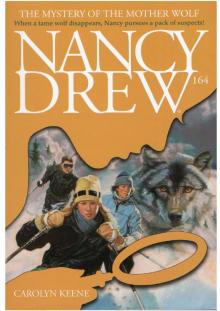 The Mystery of the Mother Wolf
The Mystery of the Mother Wolf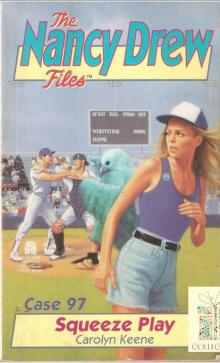 097 Squeeze Play
097 Squeeze Play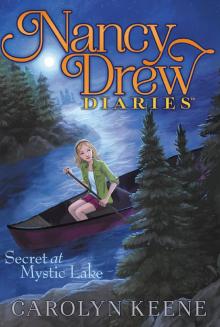 Secret at Mystic Lake
Secret at Mystic Lake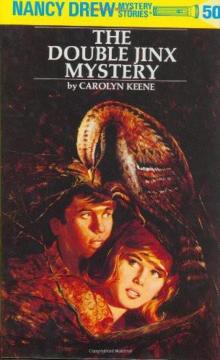 The Double Jinx Mystery
The Double Jinx Mystery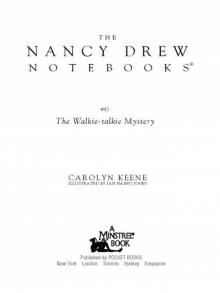 The Walkie Talkie Mystery
The Walkie Talkie Mystery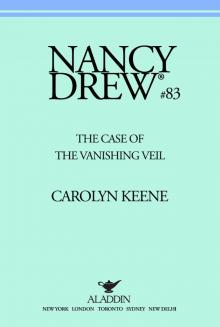 The Case of the Vanishing Veil
The Case of the Vanishing Veil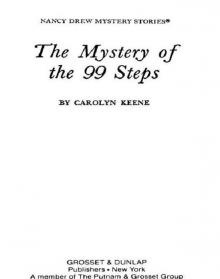 The Mystery of the 99 Steps
The Mystery of the 99 Steps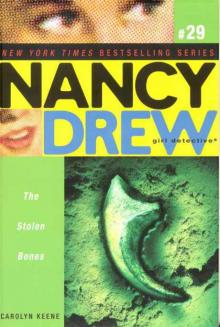 The Stolen Bones
The Stolen Bones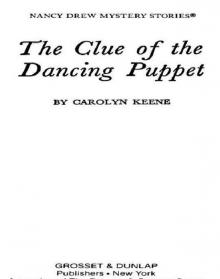 The Clue of the Dancing Puppet
The Clue of the Dancing Puppet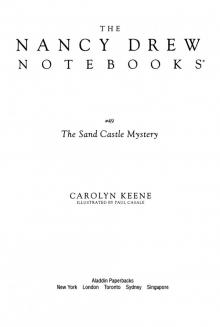 The Sand Castle Mystery
The Sand Castle Mystery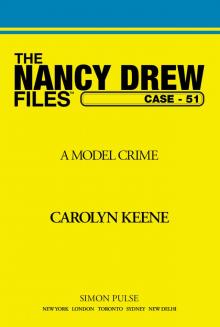 A Model Crime
A Model Crime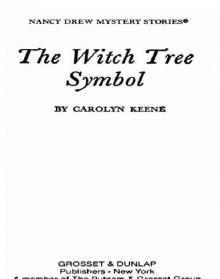 The Witch Tree Symbol
The Witch Tree Symbol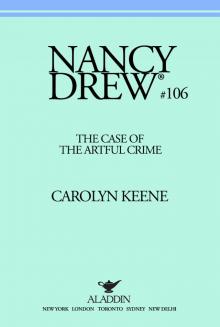 The Case of the Artful Crime
The Case of the Artful Crime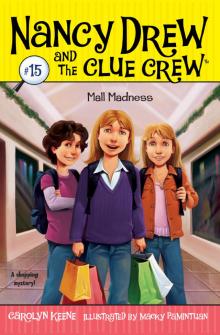 Mall Madness
Mall Madness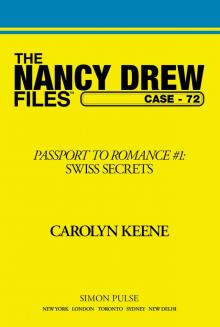 Swiss Secrets
Swiss Secrets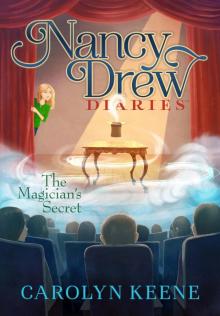 The Magician's Secret
The Magician's Secret Tall, Dark and Deadly
Tall, Dark and Deadly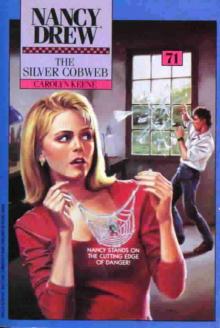 The Silver Cobweb
The Silver Cobweb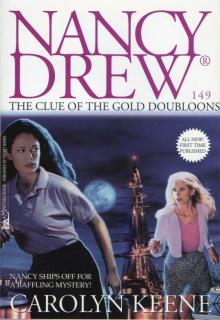 The Clue of the Gold Doubloons
The Clue of the Gold Doubloons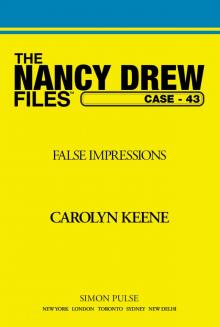 False Impressions
False Impressions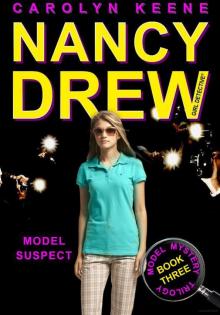 Model Suspect
Model Suspect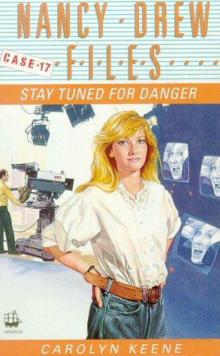 Stay Tuned for Danger
Stay Tuned for Danger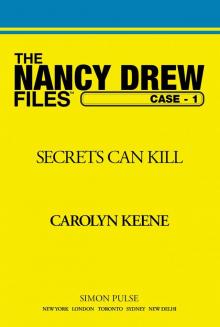 Secrets Can Kill
Secrets Can Kill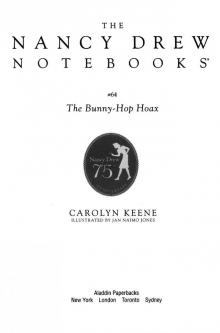 The Bunny-Hop Hoax
The Bunny-Hop Hoax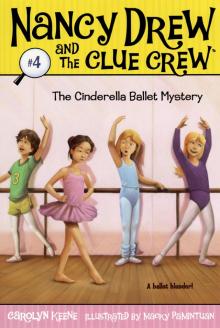 The Cinderella Ballet Mystery
The Cinderella Ballet Mystery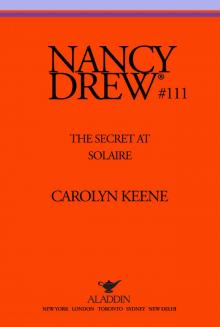 The Secret at Solaire
The Secret at Solaire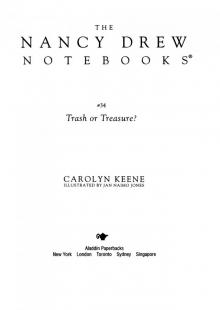 Trash or Treasure?
Trash or Treasure?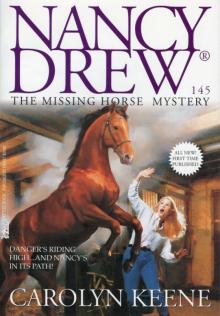 The Missing Horse Mystery
The Missing Horse Mystery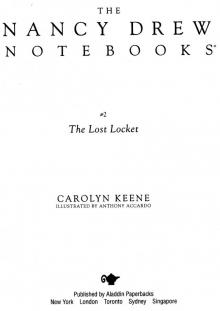 The Lost Locket
The Lost Locket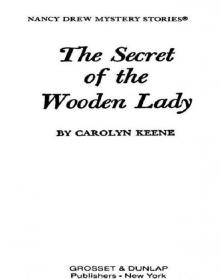 The Secret of the Wooden Lady
The Secret of the Wooden Lady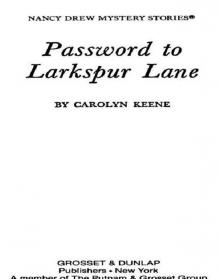 Password to Larkspur Lane
Password to Larkspur Lane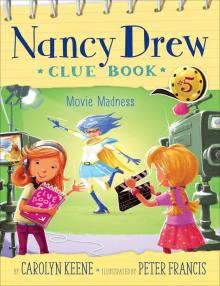 Movie Madness
Movie Madness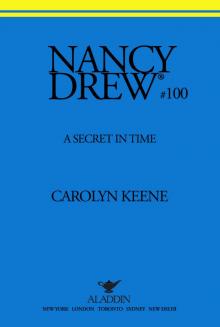 A Secret in Time
A Secret in Time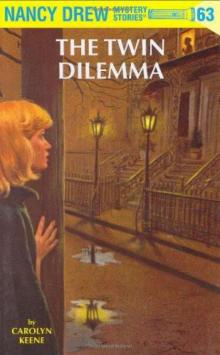 The Twin Dilemma
The Twin Dilemma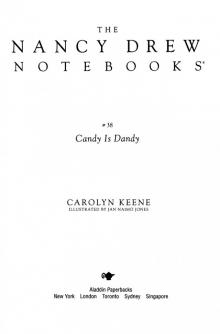 Candy Is Dandy
Candy Is Dandy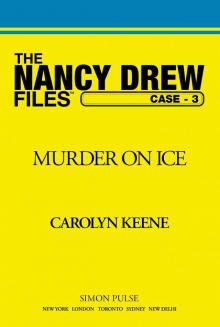 Murder on Ice
Murder on Ice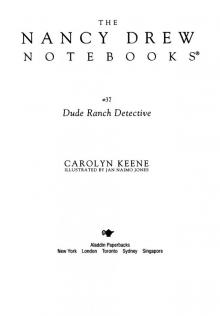 Dude Ranch Detective
Dude Ranch Detective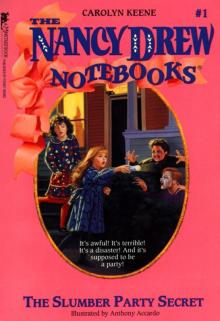 The Slumber Party Secret
The Slumber Party Secret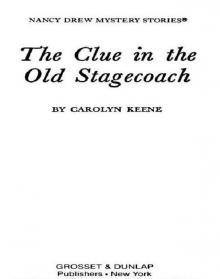 The Clue in the Old Stagecoach
The Clue in the Old Stagecoach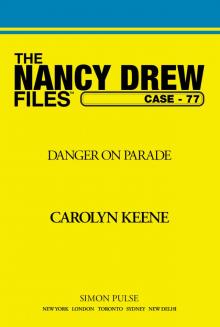 Danger on Parade
Danger on Parade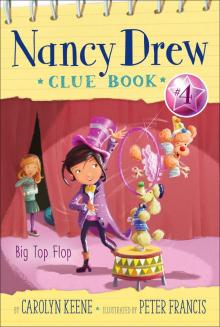 Big Top Flop
Big Top Flop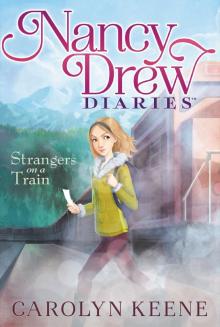 Strangers on a Train
Strangers on a Train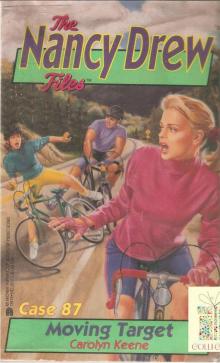 087 Moving Target
087 Moving Target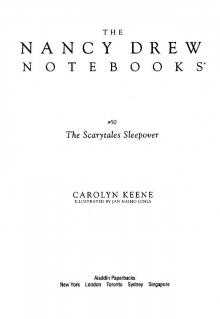 The Scarytales Sleepover
The Scarytales Sleepover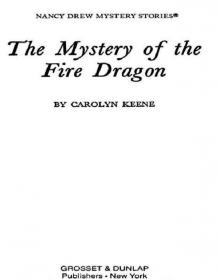 The Mystery of the Fire Dragon
The Mystery of the Fire Dragon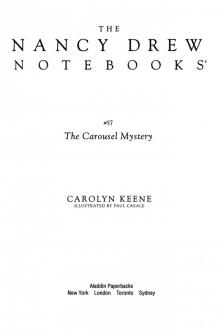 The Carousel Mystery
The Carousel Mystery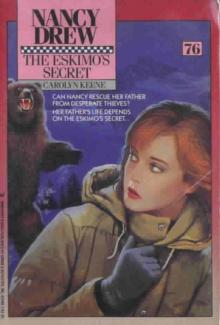 The Eskimo's Secret
The Eskimo's Secret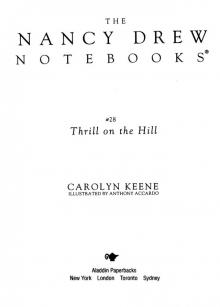 Thrill on the Hill
Thrill on the Hill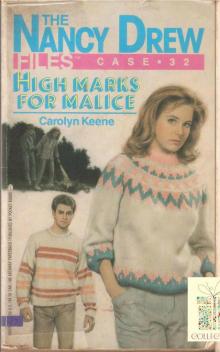 032 High Marks for Malice
032 High Marks for Malice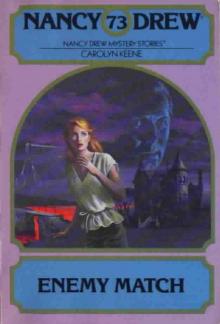 Enemy Match
Enemy Match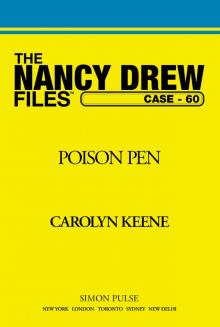 Poison Pen
Poison Pen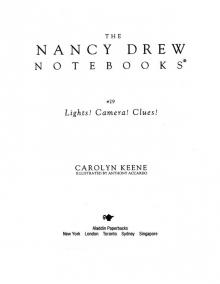 Lights, Camera . . . Cats!
Lights, Camera . . . Cats!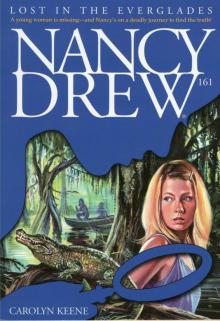 Lost in the Everglades
Lost in the Everglades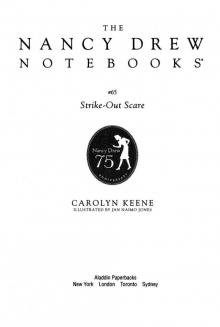 Strike-Out Scare
Strike-Out Scare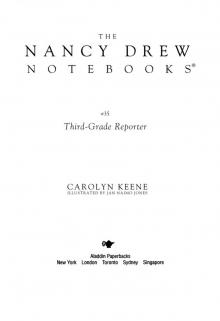 Third-Grade Reporter
Third-Grade Reporter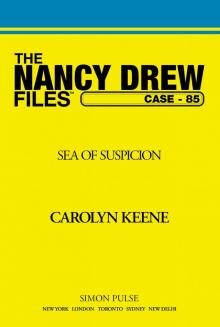 Sea of Suspicion
Sea of Suspicion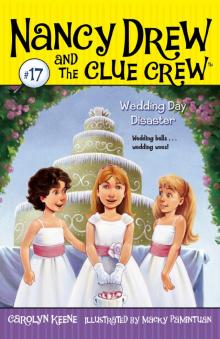 Wedding Day Disaster
Wedding Day Disaster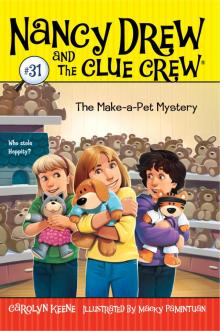 The Make-A-Pet Mystery
The Make-A-Pet Mystery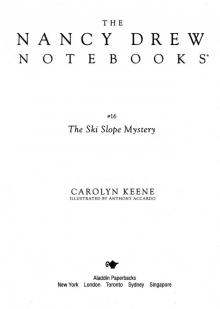 The Ski Slope Mystery
The Ski Slope Mystery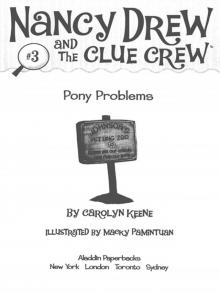 Pony Problems
Pony Problems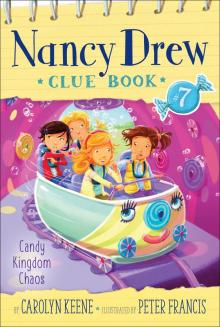 Candy Kingdom Chaos
Candy Kingdom Chaos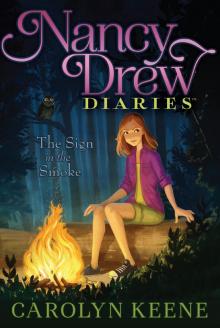 The Sign in the Smoke
The Sign in the Smoke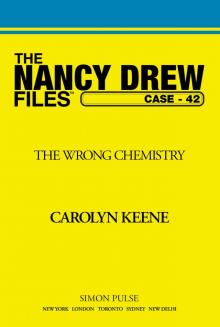 The Wrong Chemistry
The Wrong Chemistry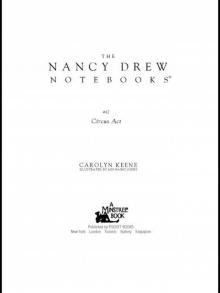 Circus Act
Circus Act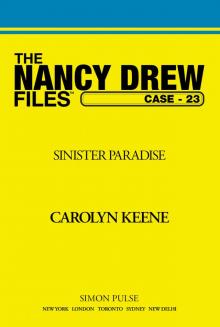 Sinister Paradise
Sinister Paradise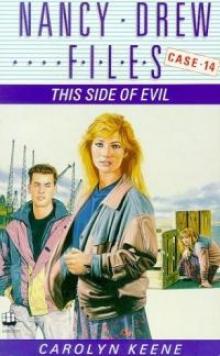 This Side of Evil
This Side of Evil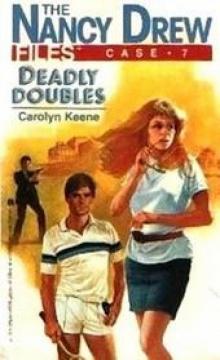 Deadly Doubles
Deadly Doubles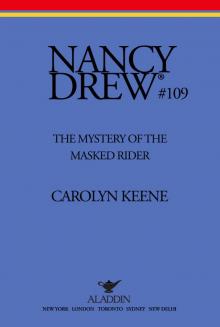 The Mystery of the Masked Rider
The Mystery of the Masked Rider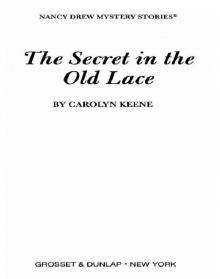 The Secret in the Old Lace
The Secret in the Old Lace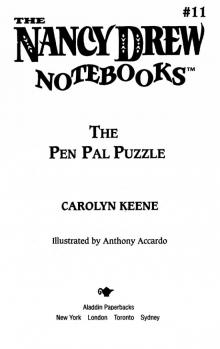 The Pen Pal Puzzle
The Pen Pal Puzzle Without a Trace
Without a Trace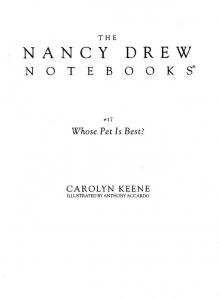 Whose Pet Is Best?
Whose Pet Is Best?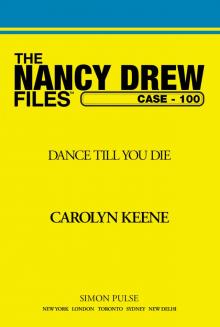 Dance Till You Die
Dance Till You Die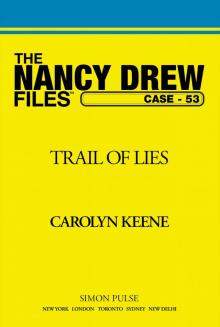 Trail of Lies
Trail of Lies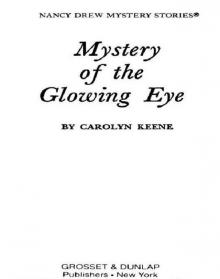 Mystery of the Glowing Eye
Mystery of the Glowing Eye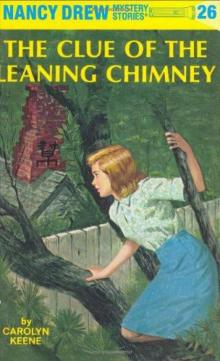 The Clue of the Leaning Chimney
The Clue of the Leaning Chimney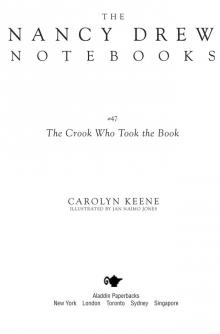 The Crook Who Took the Book
The Crook Who Took the Book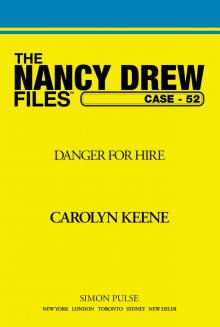 Danger for Hire
Danger for Hire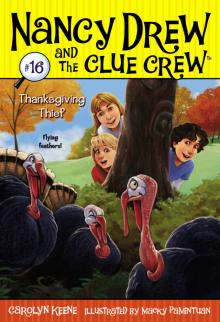 Thanksgiving Thief
Thanksgiving Thief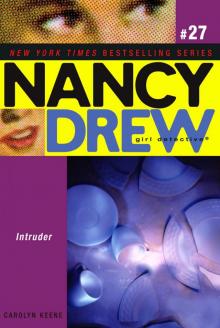 Intruder!
Intruder!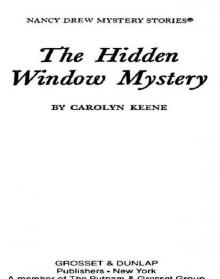 The Hidden Window Mystery
The Hidden Window Mystery Win, Place or Die
Win, Place or Die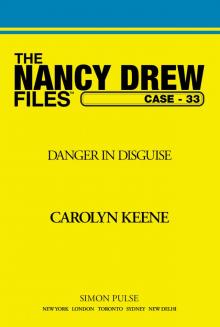 Danger in Disguise
Danger in Disguise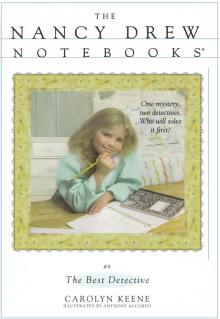 The Best Detective
The Best Detective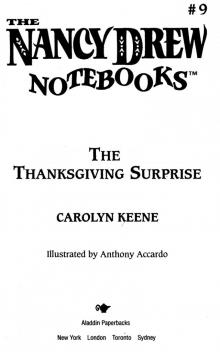 The Thanksgiving Surprise
The Thanksgiving Surprise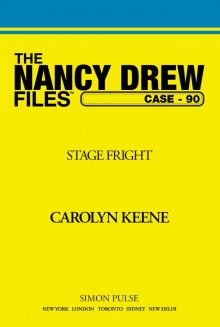 Stage Fright
Stage Fright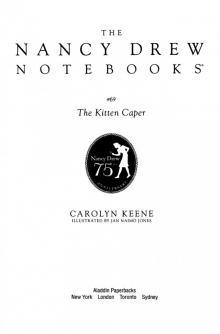 The Kitten Caper
The Kitten Caper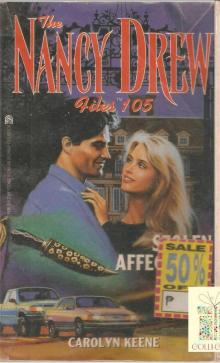 Stolen Affections
Stolen Affections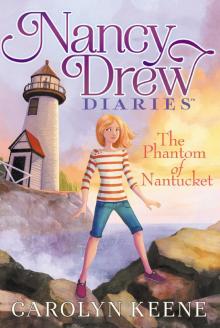 The Phantom of Nantucket
The Phantom of Nantucket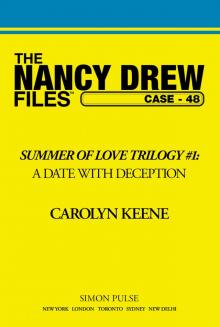 Date With Deception
Date With Deception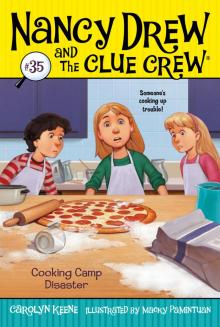 Cooking Camp Disaster
Cooking Camp Disaster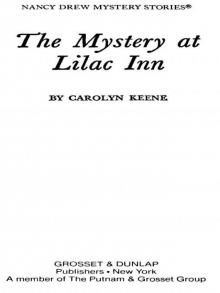 The Mystery at Lilac Inn
The Mystery at Lilac Inn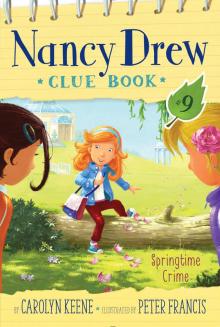 Springtime Crime
Springtime Crime Action!
Action! Into Thin Air
Into Thin Air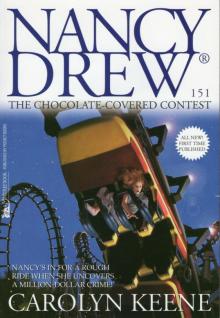 The Chocolate-Covered Contest
The Chocolate-Covered Contest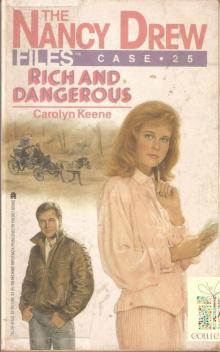 025 Rich and Dangerous
025 Rich and Dangerous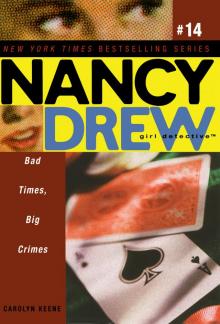 Bad Times, Big Crimes
Bad Times, Big Crimes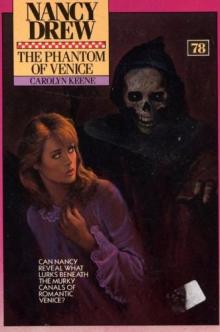 078 The Phantom Of Venice
078 The Phantom Of Venice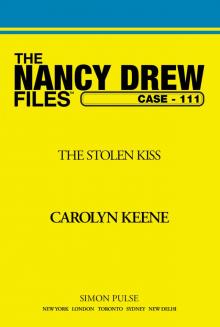 The Stolen Kiss
The Stolen Kiss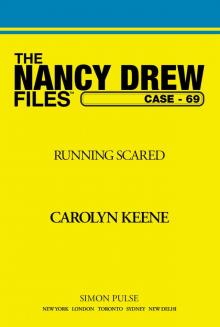 Running Scared
Running Scared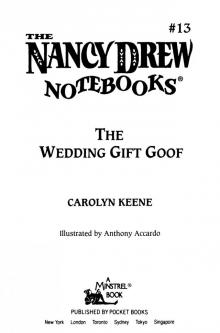 The Wedding Gift Goof
The Wedding Gift Goof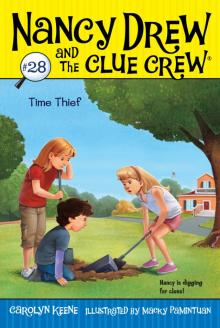 Time Thief
Time Thief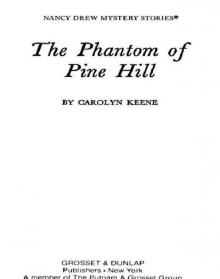 The Phantom of Pine Hill
The Phantom of Pine Hill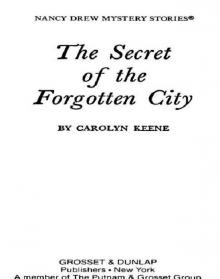 The Secret of the Forgotten City
The Secret of the Forgotten City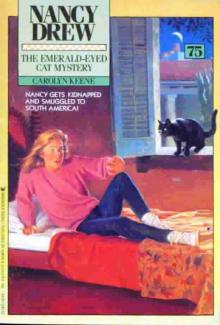 The Emerald-Eyed Cat Mystery
The Emerald-Eyed Cat Mystery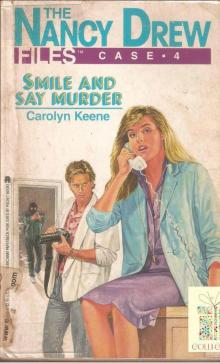 004 Smile and Say Murder
004 Smile and Say Murder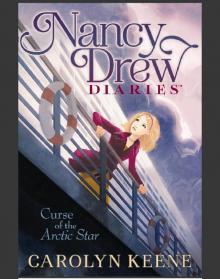 Curse of the Arctic Star
Curse of the Arctic Star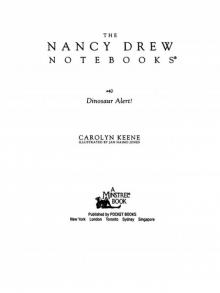 Dinosaur Alert!
Dinosaur Alert!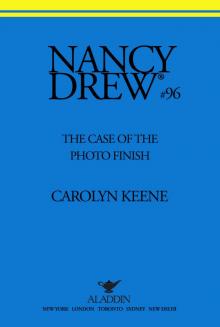 The Case of the Photo Finish
The Case of the Photo Finish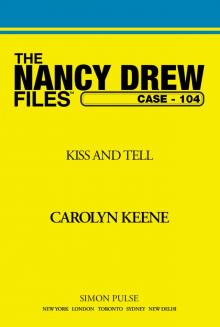 Kiss and Tell
Kiss and Tell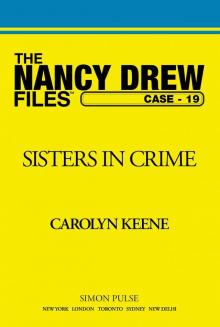 Sisters in Crime
Sisters in Crime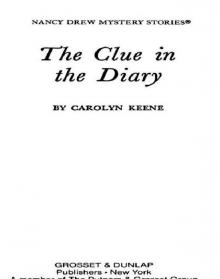 The Clue in the Diary
The Clue in the Diary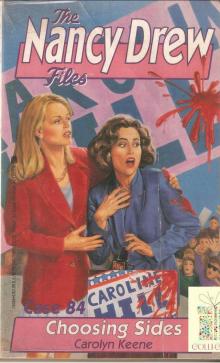 084 Choosing Sides
084 Choosing Sides Haunting of Horse Island
Haunting of Horse Island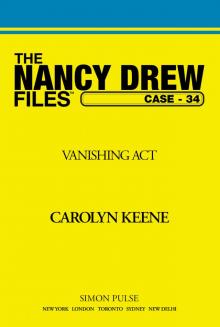 Vanishing Act
Vanishing Act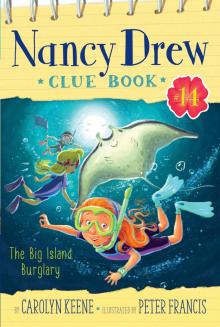 The Big Island Burglary
The Big Island Burglary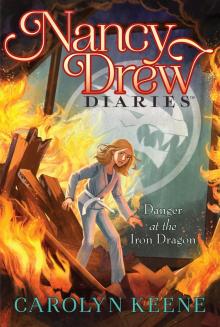 Danger at the Iron Dragon
Danger at the Iron Dragon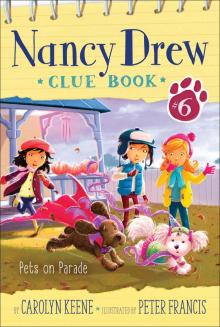 Pets on Parade
Pets on Parade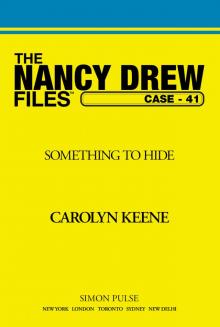 Something to Hide
Something to Hide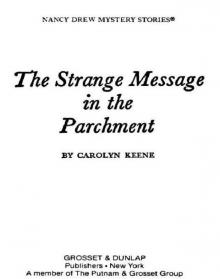 The Strange Message in the Parchment
The Strange Message in the Parchment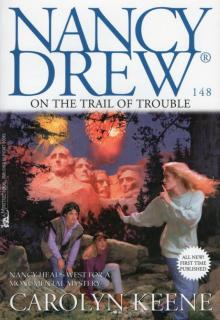 On the Trail of Trouble
On the Trail of Trouble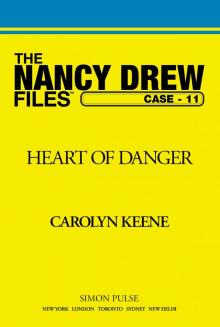 Heart of Danger
Heart of Danger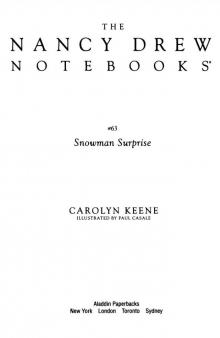 The Snowman Surprise
The Snowman Surprise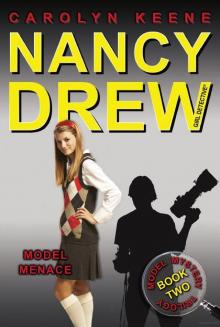 Model Menace
Model Menace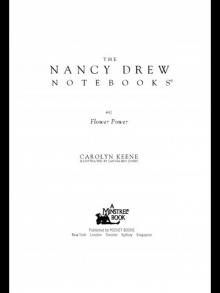 Flower Power
Flower Power The Great Goat Gaffe
The Great Goat Gaffe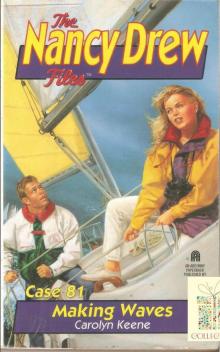 081 Making Waves
081 Making Waves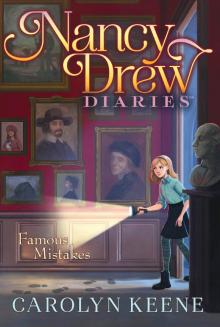 Famous Mistakes
Famous Mistakes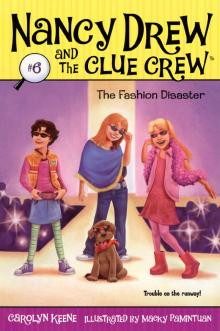 The Fashion Disaster
The Fashion Disaster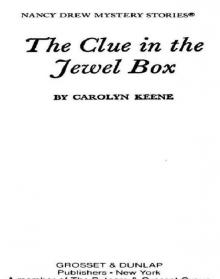 The Clue in the Jewel Box
The Clue in the Jewel Box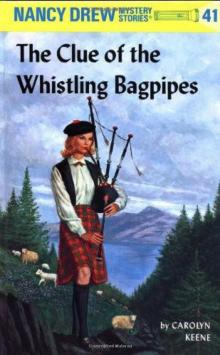 The Clue of the Whistling Bagpipes
The Clue of the Whistling Bagpipes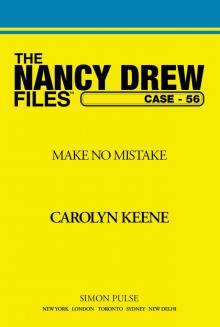 Make No Mistake
Make No Mistake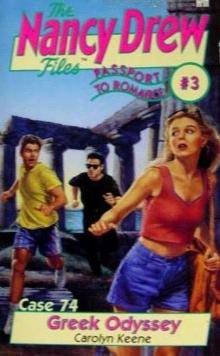 Greek Odyssey
Greek Odyssey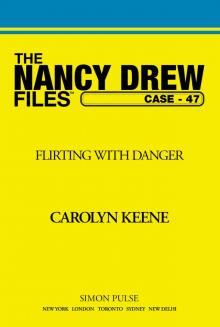 Flirting With Danger
Flirting With Danger Double Take
Double Take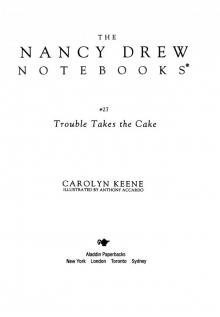 Trouble Takes the Cake
Trouble Takes the Cake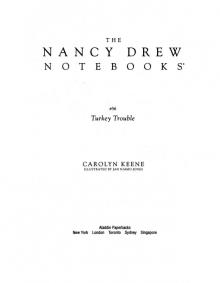 Turkey Trouble
Turkey Trouble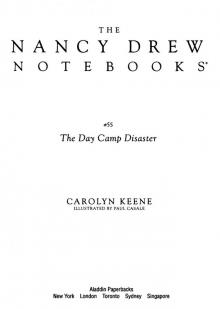 The Day Camp Disaster
The Day Camp Disaster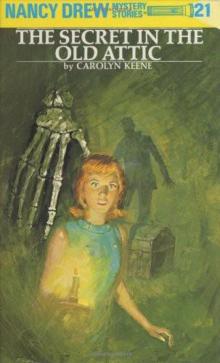 The Secret in the Old Attic
The Secret in the Old Attic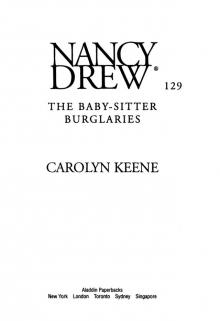 The Baby-Sitter Burglaries
The Baby-Sitter Burglaries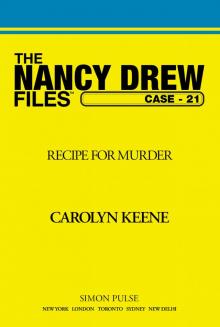 Recipe for Murder
Recipe for Murder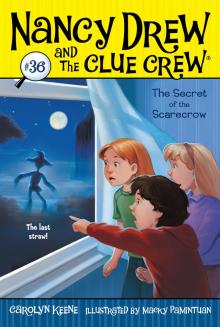 The Secret of the Scarecrow
The Secret of the Scarecrow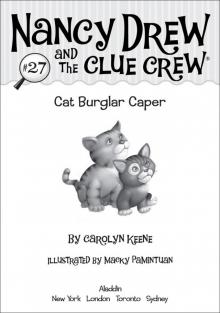 Cat Burglar Caper
Cat Burglar Caper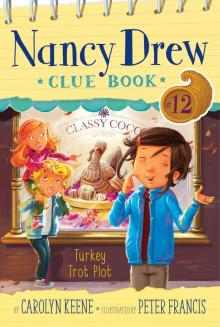 Turkey Trot Plot
Turkey Trot Plot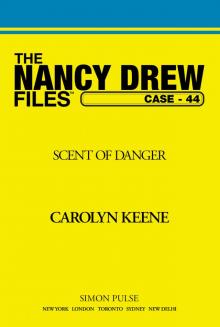 Scent of Danger
Scent of Danger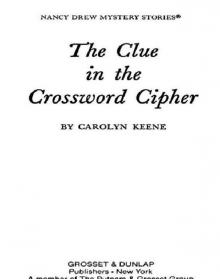 The Clue in the Crossword Cipher
The Clue in the Crossword Cipher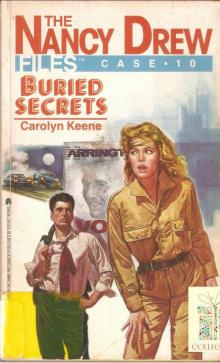 010 Buried Secrets
010 Buried Secrets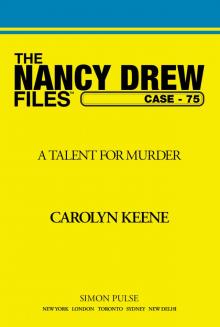 A Talent for Murder
A Talent for Murder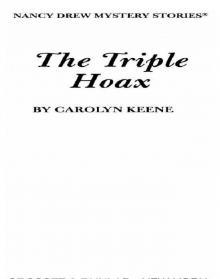 The Triple Hoax
The Triple Hoax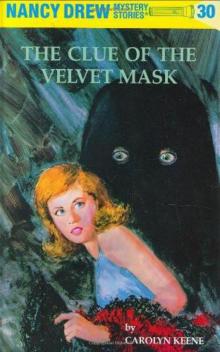 The Clue of the Velvet Mask
The Clue of the Velvet Mask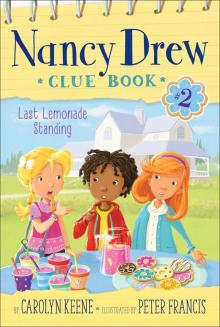 Last Lemonade Standing
Last Lemonade Standing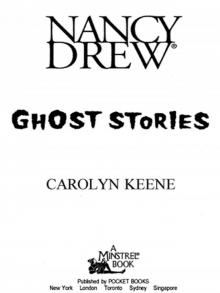 The Ghost of Blackwood Hall
The Ghost of Blackwood Hall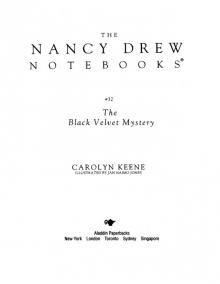 The Black Velvet Mystery
The Black Velvet Mystery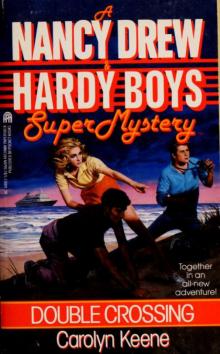 Double Crossing
Double Crossing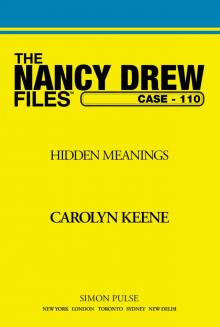 Hidden Meanings
Hidden Meanings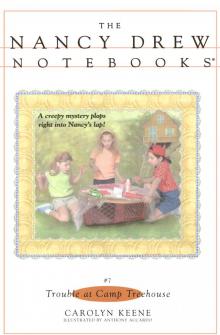 Trouble at Camp Treehouse
Trouble at Camp Treehouse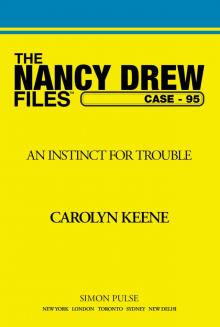 An Instinct for Trouble
An Instinct for Trouble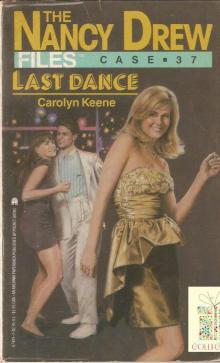 037 Last Dance
037 Last Dance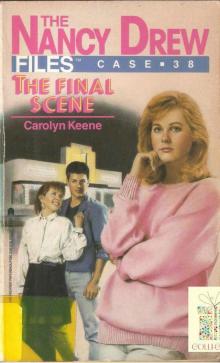 038 The Final Scene
038 The Final Scene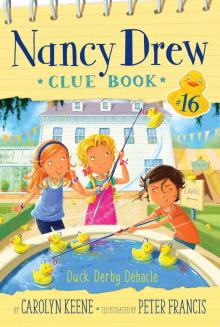 Duck Derby Debacle
Duck Derby Debacle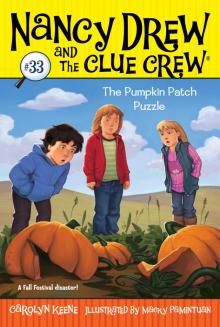 The Pumpkin Patch Puzzle
The Pumpkin Patch Puzzle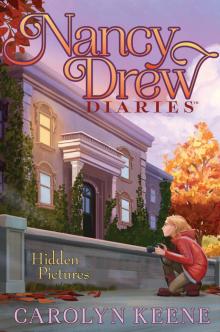 Hidden Pictures
Hidden Pictures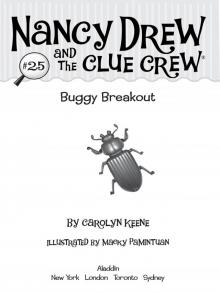 Buggy Breakout
Buggy Breakout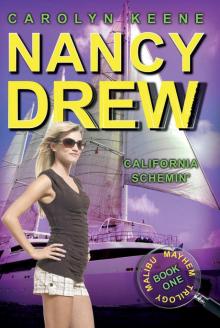 California Schemin'
California Schemin'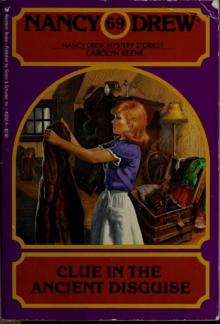 Clue in the Ancient Disguise
Clue in the Ancient Disguise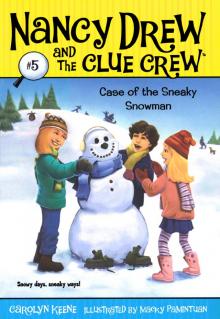 Case of the Sneaky Snowman
Case of the Sneaky Snowman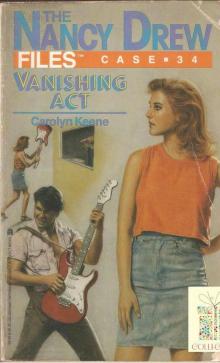 034 Vanishing Act
034 Vanishing Act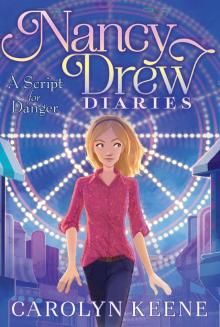 A Script for Danger
A Script for Danger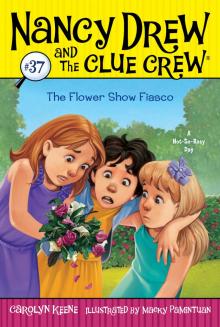 The Flower Show Fiasco
The Flower Show Fiasco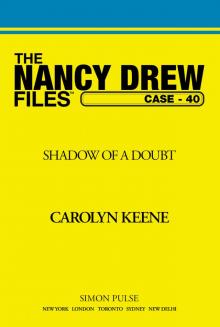 Shadow of a Doubt
Shadow of a Doubt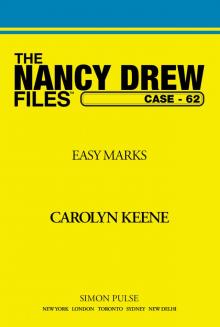 Easy Marks
Easy Marks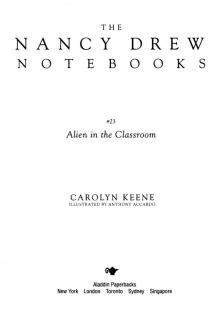 Alien in the Classroom
Alien in the Classroom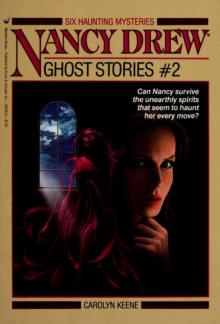 Ghost Stories, #2 (Nancy Drew)
Ghost Stories, #2 (Nancy Drew)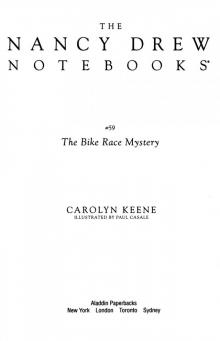 The Bike Race Mystery
The Bike Race Mystery False Pretenses
False Pretenses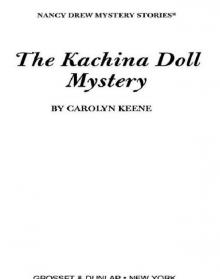 The Kachina Doll Mystery
The Kachina Doll Mystery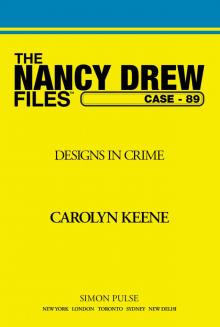 Designs in Crime
Designs in Crime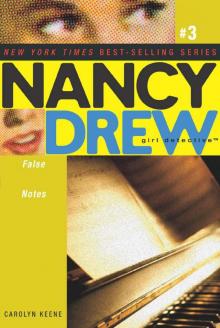 False Notes
False Notes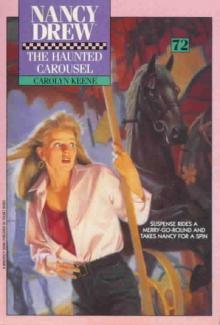 The Haunted Carousel
The Haunted Carousel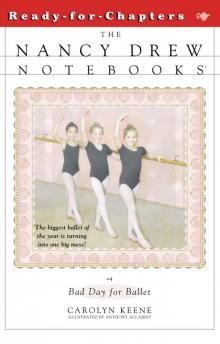 Bad Day for Ballet
Bad Day for Ballet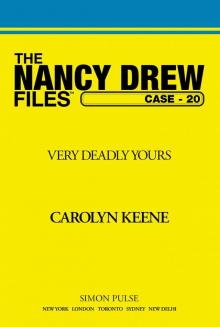 Very Deadly Yours
Very Deadly Yours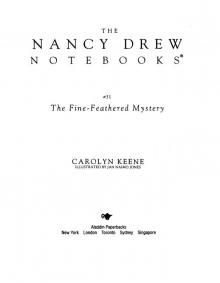 The Fine-Feathered Mystery
The Fine-Feathered Mystery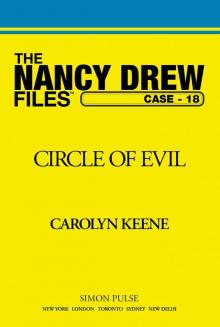 Circle of Evil
Circle of Evil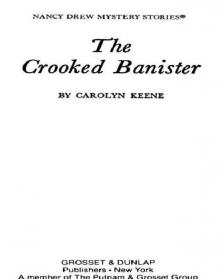 The Crooked Banister
The Crooked Banister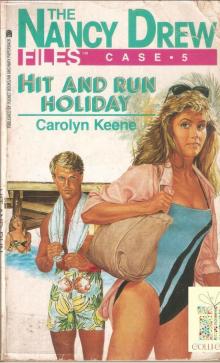 005 Hit and Run Holiday
005 Hit and Run Holiday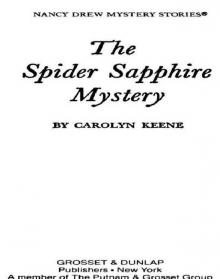 The Spider Sapphire Mystery
The Spider Sapphire Mystery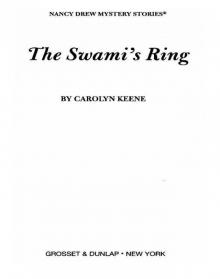 The Swami's Ring
The Swami's Ring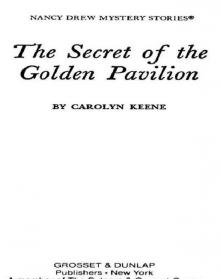 The Secret of the Golden Pavilion
The Secret of the Golden Pavilion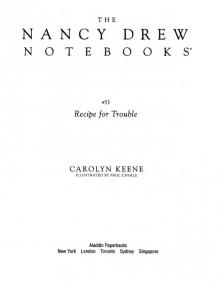 Recipe for Trouble
Recipe for Trouble Betrayed by Love
Betrayed by Love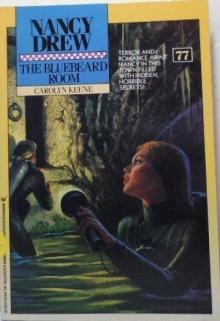 The Bluebeard Room
The Bluebeard Room Sweet Revenge
Sweet Revenge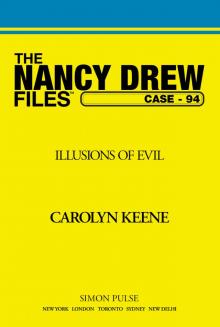 Illusions of Evil
Illusions of Evil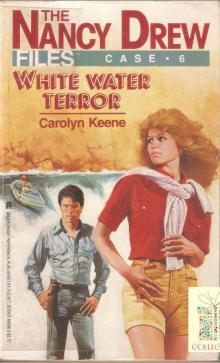 006 White Water Terror
006 White Water Terror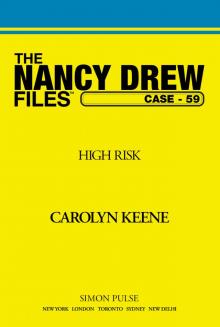 High Risk
High Risk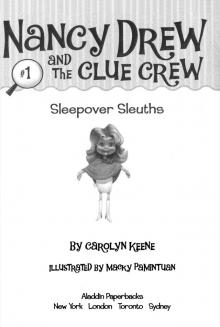 Sleepover Sleuths
Sleepover Sleuths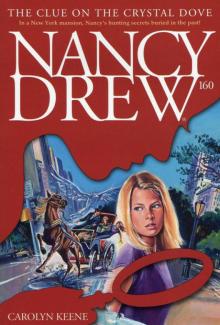 The Clue on the Crystal Dove
The Clue on the Crystal Dove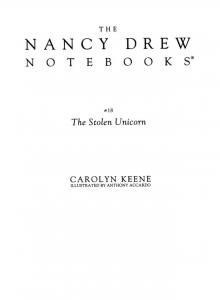 The Stolen Unicorn
The Stolen Unicorn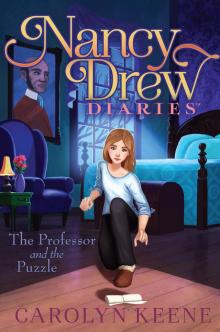 The Professor and the Puzzle
The Professor and the Puzzle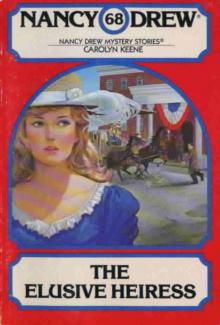 The Elusive Heiress
The Elusive Heiress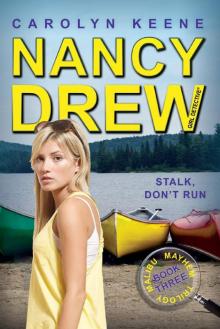 Stalk, Don't Run
Stalk, Don't Run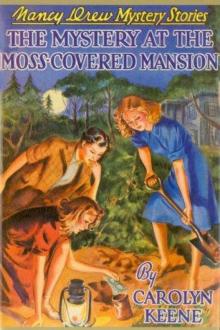 The Mystery at the Moss-Covered Mansion
The Mystery at the Moss-Covered Mansion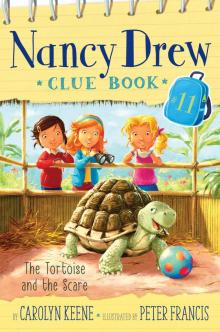 The Tortoise and the Scare
The Tortoise and the Scare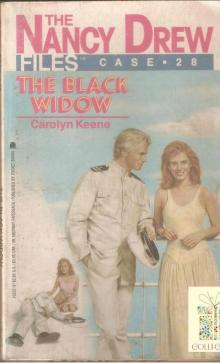 028 The Black Widow
028 The Black Widow Big Worry in Wonderland
Big Worry in Wonderland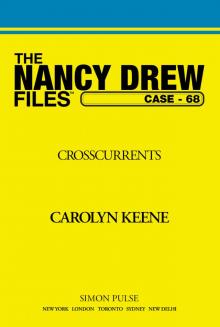 Crosscurrents
Crosscurrents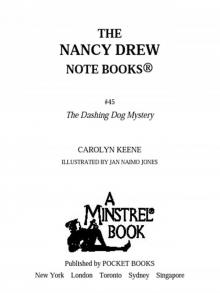 The Dashing Dog Mystery
The Dashing Dog Mystery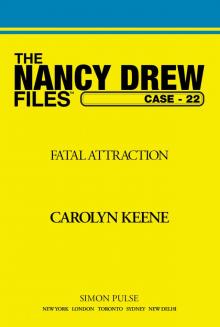 Fatal Attraction
Fatal Attraction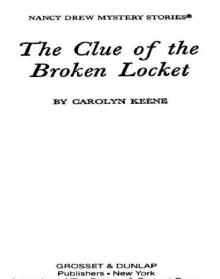 The Clue of the Broken Locket
The Clue of the Broken Locket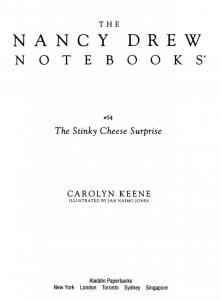 The Stinky Cheese Surprise
The Stinky Cheese Surprise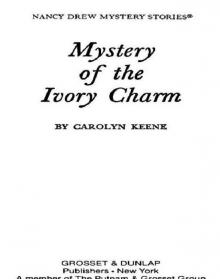 Mystery of the Ivory Charm
Mystery of the Ivory Charm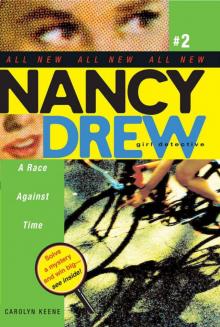 A Race Against Time
A Race Against Time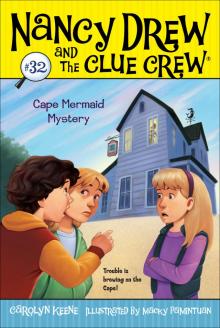 Cape Mermaid Mystery
Cape Mermaid Mystery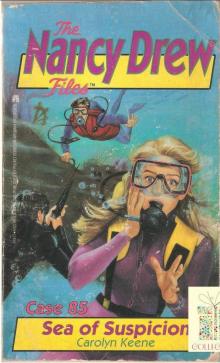 085 Sea of Suspicion
085 Sea of Suspicion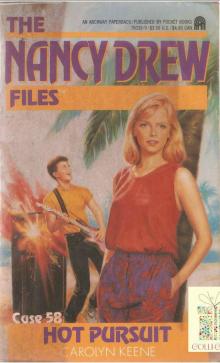 058 Hot Pursuit
058 Hot Pursuit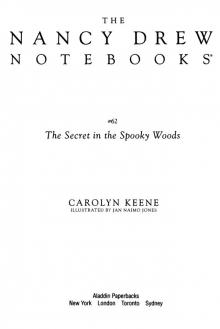 The Secret in the Spooky Woods
The Secret in the Spooky Woods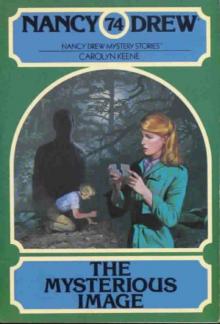 The Mysterious Image
The Mysterious Image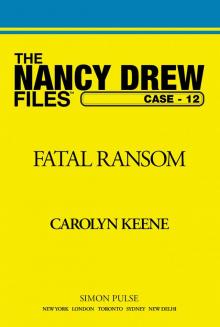 Fatal Ransom
Fatal Ransom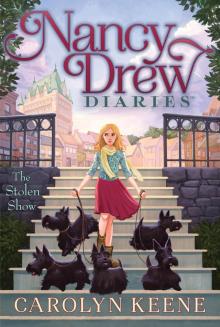 The Stolen Show
The Stolen Show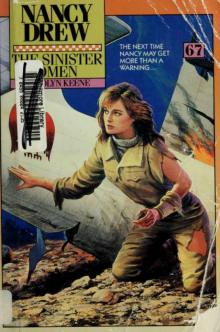 The Sinister Omen
The Sinister Omen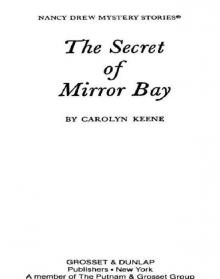 The Secret of Mirror Bay
The Secret of Mirror Bay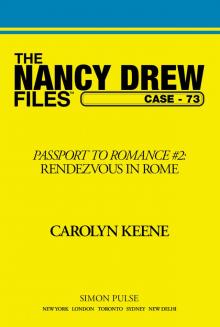 Rendezvous in Rome
Rendezvous in Rome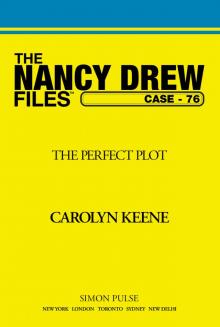 The Perfect Plot
The Perfect Plot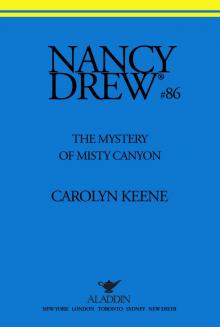 The Mystery of Misty Canyon
The Mystery of Misty Canyon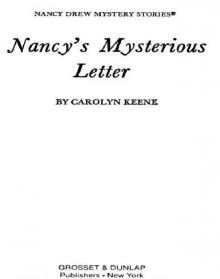 Nancy's Mysterious Letter
Nancy's Mysterious Letter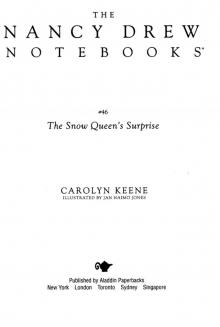 The Snow Queen's Surprise
The Snow Queen's Surprise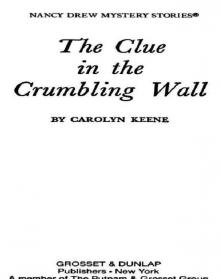 The Clue in the Crumbling Wall
The Clue in the Crumbling Wall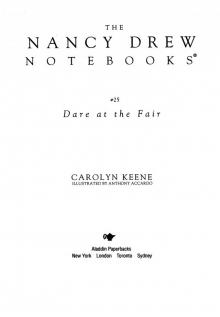 Dare at the Fair
Dare at the Fair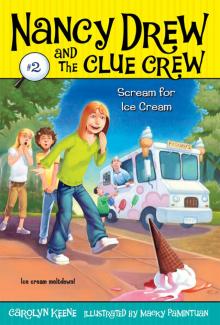 Scream for Ice Cream
Scream for Ice Cream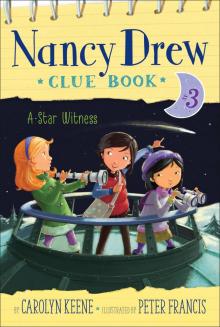 A Star Witness
A Star Witness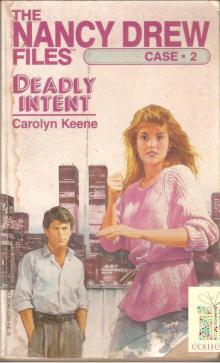 002 Deadly Intent
002 Deadly Intent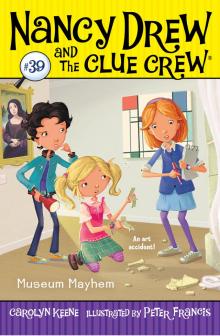 Museum Mayhem
Museum Mayhem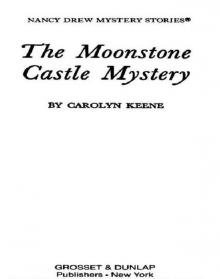 The Moonstone Castle Mystery
The Moonstone Castle Mystery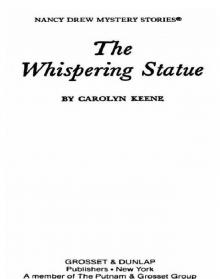 The Whispering Statue
The Whispering Statue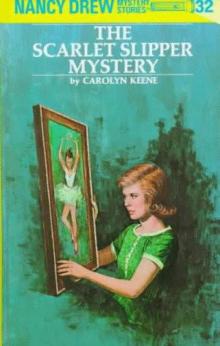 The Scarlet Slipper Mystery
The Scarlet Slipper Mystery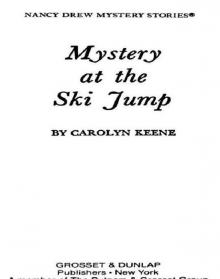 Mystery at the Ski Jump
Mystery at the Ski Jump Hot Pursuit
Hot Pursuit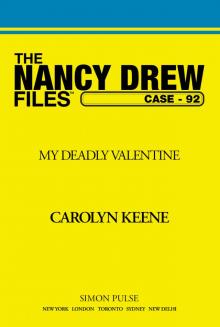 My Deadly Valentine
My Deadly Valentine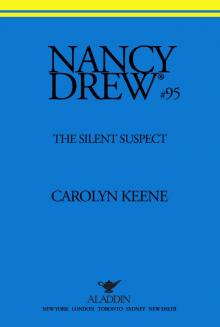 The Silent Suspect
The Silent Suspect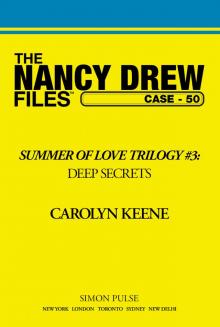 Deep Secrets
Deep Secrets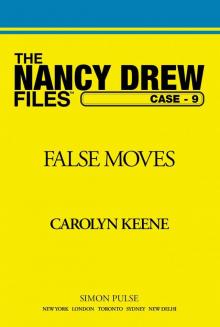 False Moves
False Moves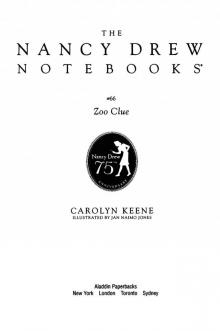 The Zoo Crew
The Zoo Crew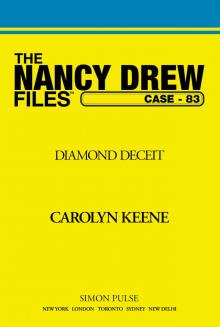 Diamond Deceit
Diamond Deceit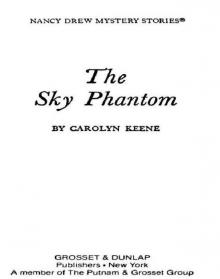 The Sky Phantom
The Sky Phantom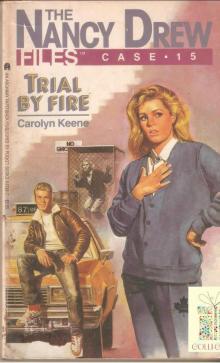 015 Trial by Fire
015 Trial by Fire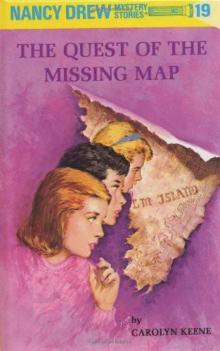 The Quest of the Missing Map
The Quest of the Missing Map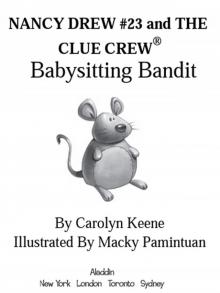 Babysitting Bandit
Babysitting Bandit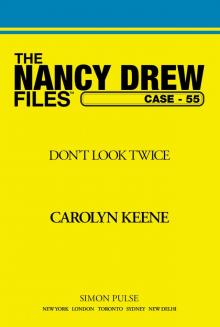 Don't Look Twice
Don't Look Twice Never Say Die
Never Say Die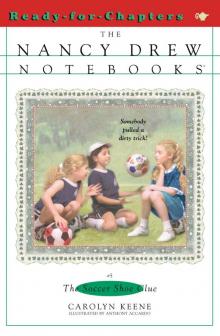 The Soccer Shoe Clue
The Soccer Shoe Clue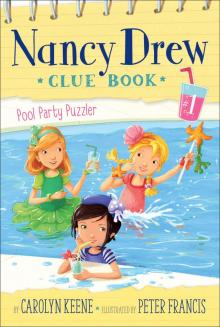 Pool Party Puzzler
Pool Party Puzzler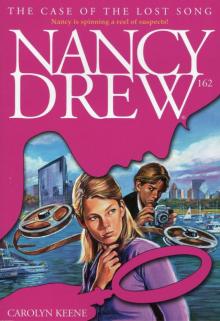 The Case of the Lost Song
The Case of the Lost Song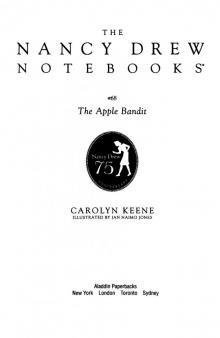 The Apple Bandit
The Apple Bandit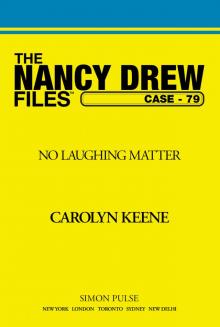 No Laughing Matter
No Laughing Matter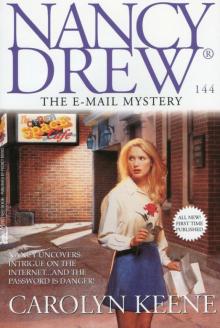 The Thirteenth Pearl
The Thirteenth Pearl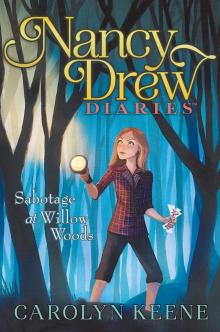 Sabotage at Willow Woods
Sabotage at Willow Woods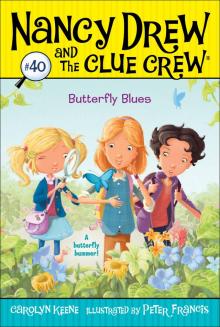 Butterfly Blues
Butterfly Blues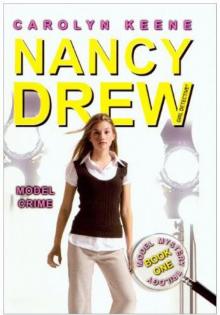 Model Crime 1
Model Crime 1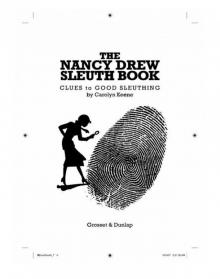 The Nancy Drew Sleuth Book
The Nancy Drew Sleuth Book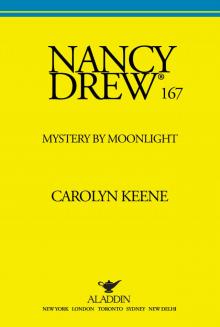 Mystery by Moonlight
Mystery by Moonlight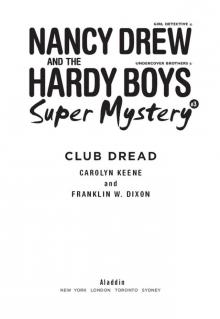 Club Dread
Club Dread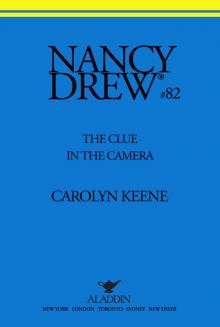 The Clue in the Camera
The Clue in the Camera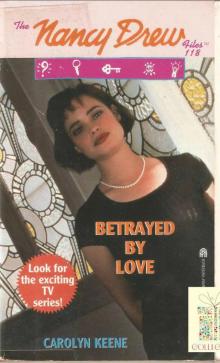 118 Betrayed By Love
118 Betrayed By Love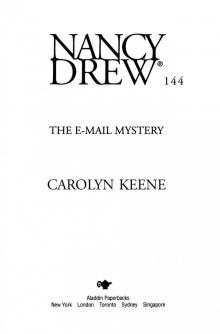 The E-Mail Mystery (Nancy Drew Book 144)
The E-Mail Mystery (Nancy Drew Book 144)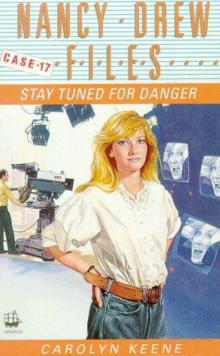 Stay Tuned for Danger: Circle of Evil
Stay Tuned for Danger: Circle of Evil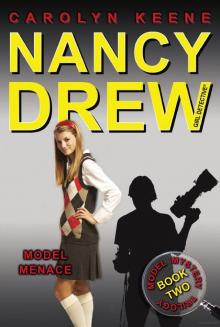 Model Menace 2
Model Menace 2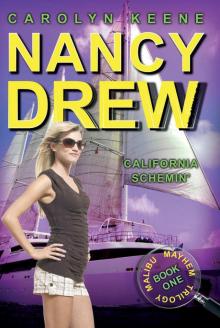 California Schemin': Book One in the Malibu Mayhem Trilogy
California Schemin': Book One in the Malibu Mayhem Trilogy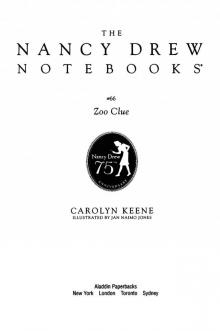 Zoo Clue (Nancy Drew Notebooks)
Zoo Clue (Nancy Drew Notebooks)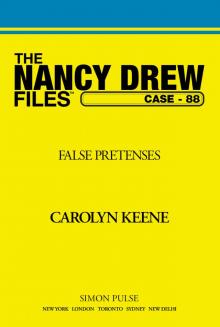 False Pretences
False Pretences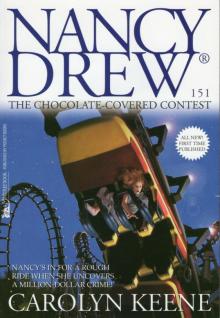 151 The Chocolate-Covered Contest
151 The Chocolate-Covered Contest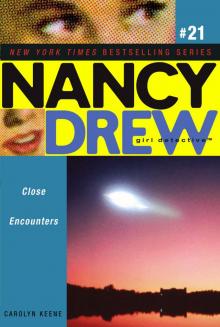 Close Encounters
Close Encounters The Emeral-Eyed Cat Mystery
The Emeral-Eyed Cat Mystery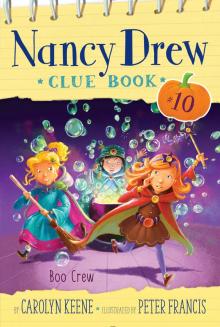 Boo Crew
Boo Crew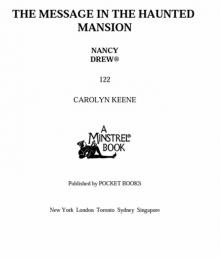 The Message in the Haunted Mansion (Nancy Drew Book 122)
The Message in the Haunted Mansion (Nancy Drew Book 122)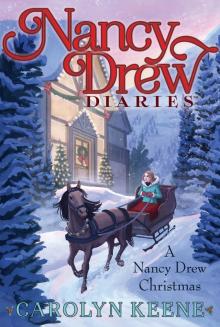 A Nancy Drew Christmas
A Nancy Drew Christmas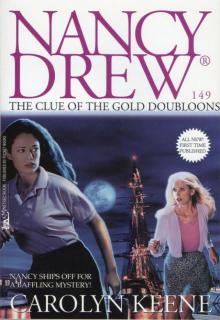 149 The Clue Of The Gold Doubloons
149 The Clue Of The Gold Doubloons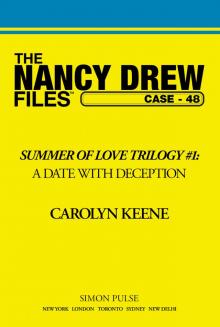 A Date with Deception
A Date with Deception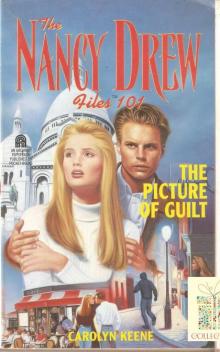 101 The Picture of Guilt
101 The Picture of Guilt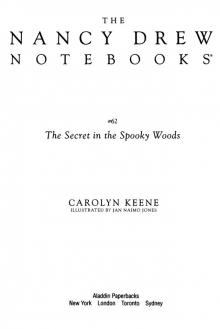 The Secret in the Spooky Woods (Nancy Drew Notebooks Book 62)
The Secret in the Spooky Woods (Nancy Drew Notebooks Book 62)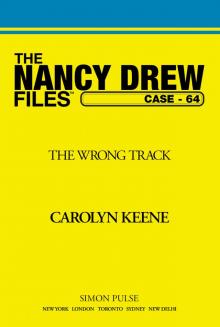 The Wrong Track
The Wrong Track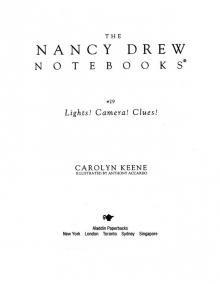 Lights! Camera! Clues!
Lights! Camera! Clues!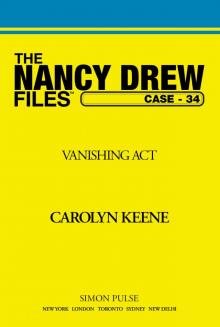 The Vanishing Act
The Vanishing Act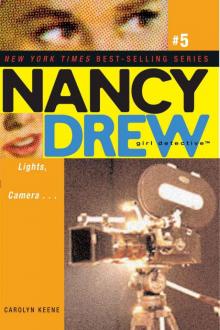 Lights, Camera . . .
Lights, Camera . . .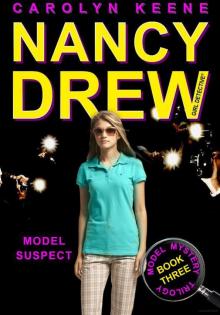 Model Suspect 3
Model Suspect 3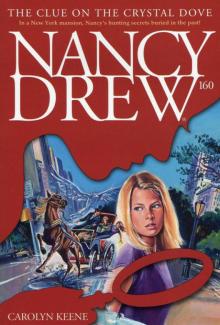 160 The Clue On The Crystal Dove
160 The Clue On The Crystal Dove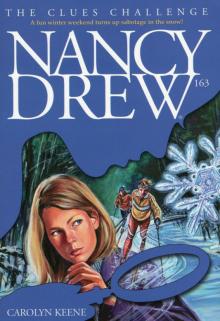 163 The Clues Challenge
163 The Clues Challenge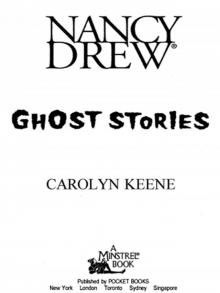 Ghost Stories (Nancy Drew)
Ghost Stories (Nancy Drew)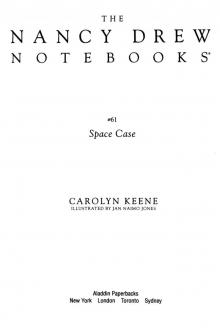 Space Case (Nancy Drew Notebooks Book 61)
Space Case (Nancy Drew Notebooks Book 61)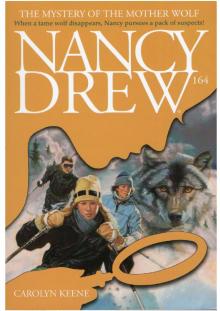 164 The Mystery Of The Mother Wolf
164 The Mystery Of The Mother Wolf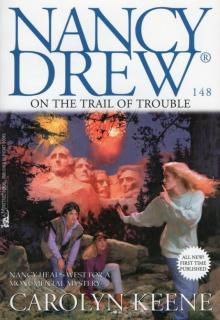 148 On The Trail Of Trouble
148 On The Trail Of Trouble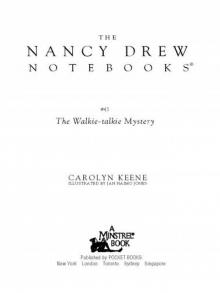 The Walkie-Talkie Mystery
The Walkie-Talkie Mystery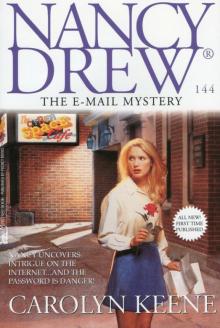 The E-Mail Mystery
The E-Mail Mystery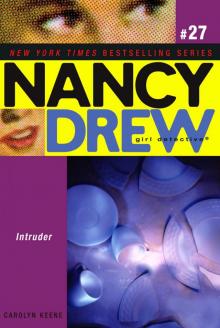 Intruder (Nancy Drew (All New) Girl Detective)
Intruder (Nancy Drew (All New) Girl Detective)![The Stolen Relic [Nancy Drew Girl Detective 007] Read online](http://i1.bookreadfree.com/i2/04/11/the_stolen_relic_nancy_drew_girl_detective_007_preview.jpg) The Stolen Relic [Nancy Drew Girl Detective 007]
The Stolen Relic [Nancy Drew Girl Detective 007]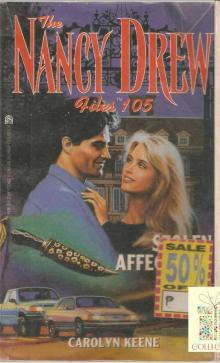 105 Stolen Affections
105 Stolen Affections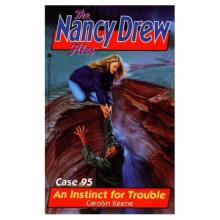 An Instict for Trouble
An Instict for Trouble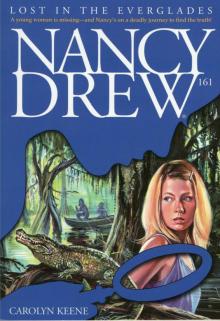 161 Lost In The Everglades
161 Lost In The Everglades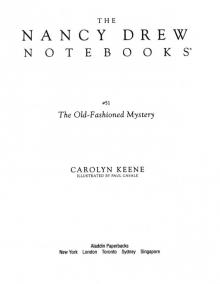 The Old-Fashioned Mystery
The Old-Fashioned Mystery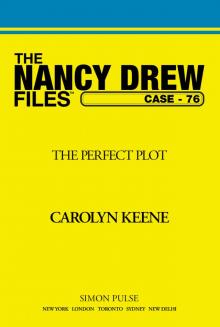 Perfect Plot
Perfect Plot